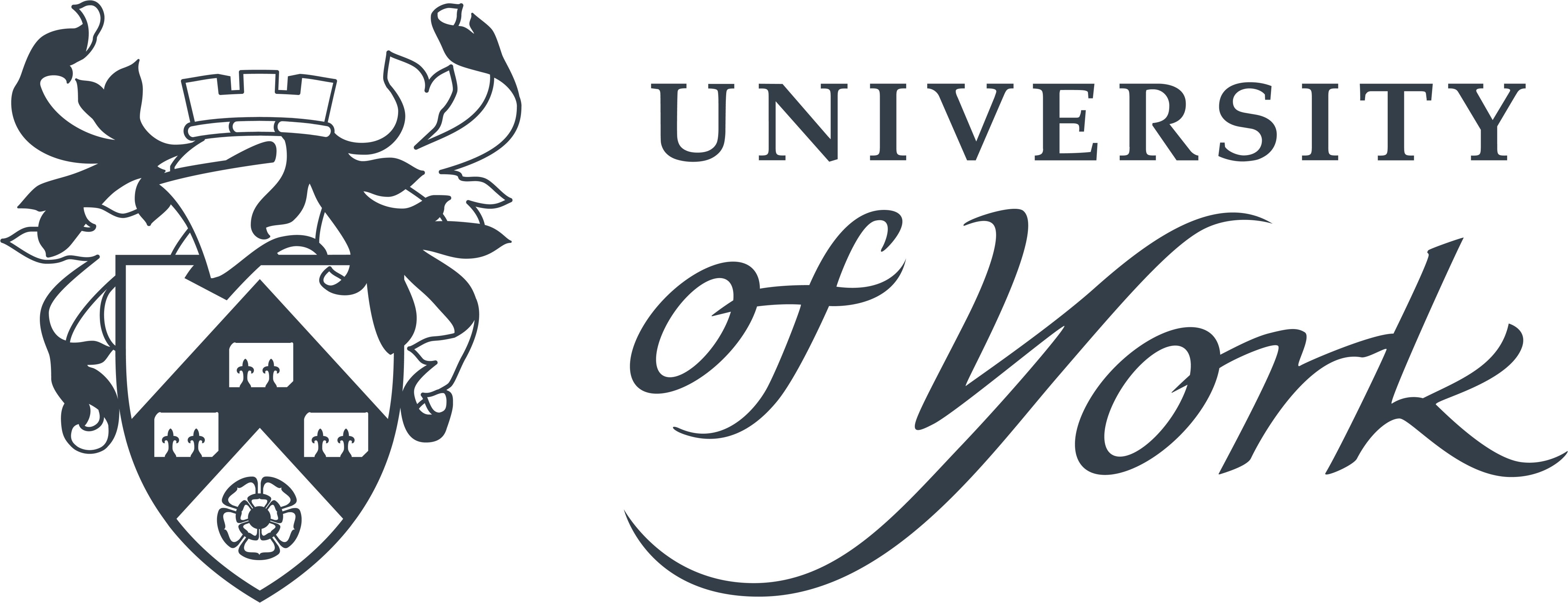College of Benefactors Newsletter Edition 2, November 2023
The University of York
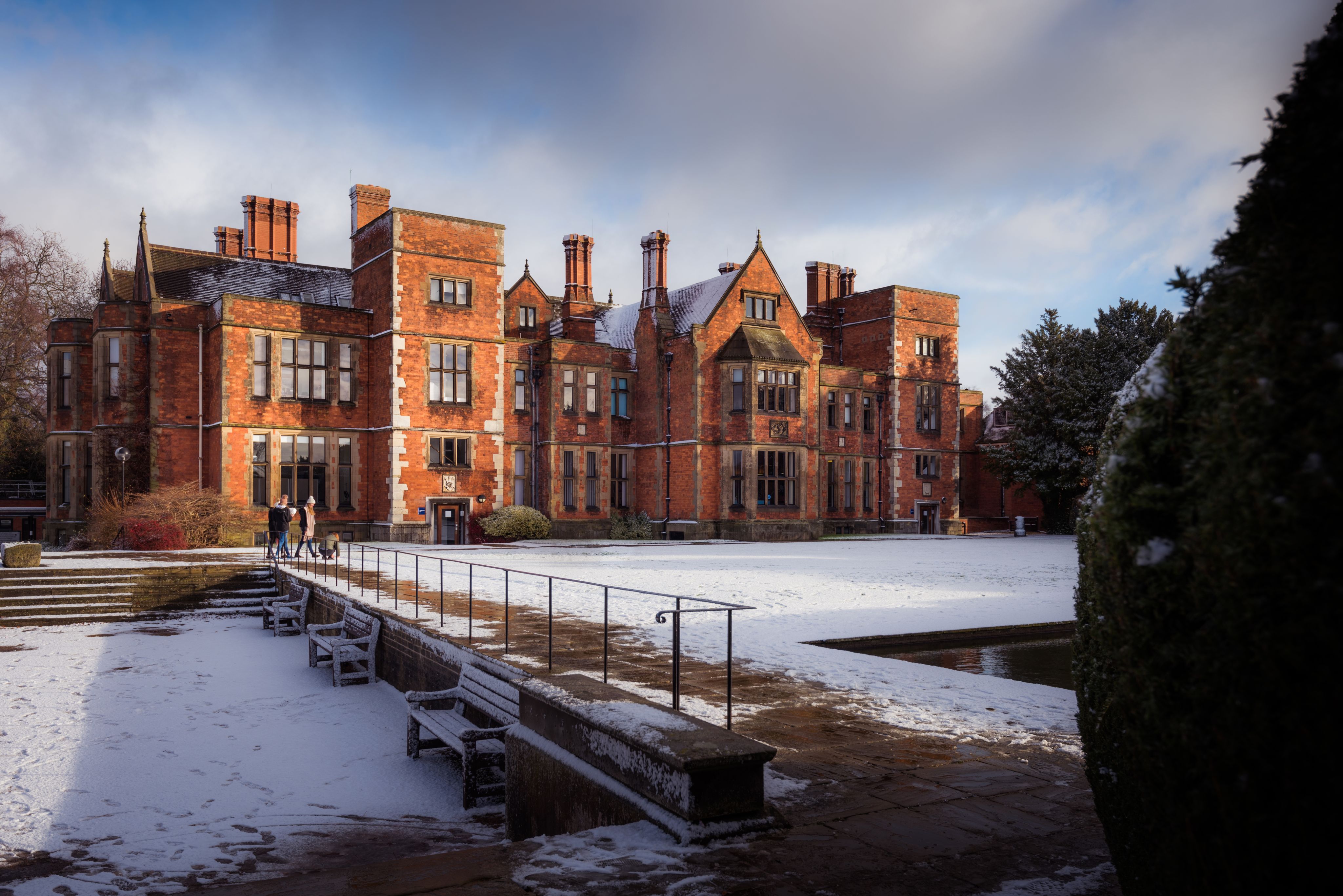
Welcome to the second College of Benefactors newsletter. The College of Benefactors was established to honour and recognise the incredible impact of its members' philanthropy, transforming opportunities for some of the most gifted scholars who would otherwise not have realised their full potential, and opening up new avenues for creativity, inquiry and research. From the cost of living crisis to AI, together we tackle some of the most pressing economic, social, and technological challenges facing our rapidly changing environment and find new ways to engage with the world around us.
In this edition, I am delighted to be able to share with you our new Research Strategy. The strategy sets our direction for the next six years, and communicates our ambition for research that is for the public good: research that is about independent minds questioning the status quo and being curious about how we can make a difference together. Delivering on these ambitions is made possible through your commitment and trust in us, and our shared belief in the transformative impact of collective action.
This impact isn’t just measured through our excellent REF results. We help shape policy and practice across the UK in many domains. You may have seen our recent Cost of Living Research Group findings in the news in October. Last month saw the opening of the Eleanor and Guy Dodson Building, a facility that enables world-leading research to take place into the structure of biomolecules, which was made possible by significant philanthropic support from members of our College of Benefactors. In the coming months, we’ll launch the Irwin and Joan Jacobs Scholarship, funded by a gift of $2.5m from Honorary Graduate Irwin Jacobs, to build a strong research community of PhD students and Fellows in the safety and ethics of AI and autonomous systems.
People and culture are at the heart of our new strategy. Many members of our community from across the University were involved in workshops to help shape the direction of research at York, enabling us to design the new strategy and reflect the passion and expertise we are so lucky to have here at York. The ‘why’ for our people is often personal - exemplified by the recently published research journey of Ian Hitchcock, Professor of Experimental Haematology and Director of the newly launched Centre for Blood Research at the University of York.
We’re determined to continue to invest in our people and in our research culture. The £4.6m Next Generation Research SuperVision Project (RSVP), funded by Research England and involving partners from within and beyond higher education, will help us transform research supervision practice, ensuring our researchers begin their careers in the best possible way. The project was included in UKRI’s recent New Deal for Postgraduate Research, as one part of the work to develop supervision.
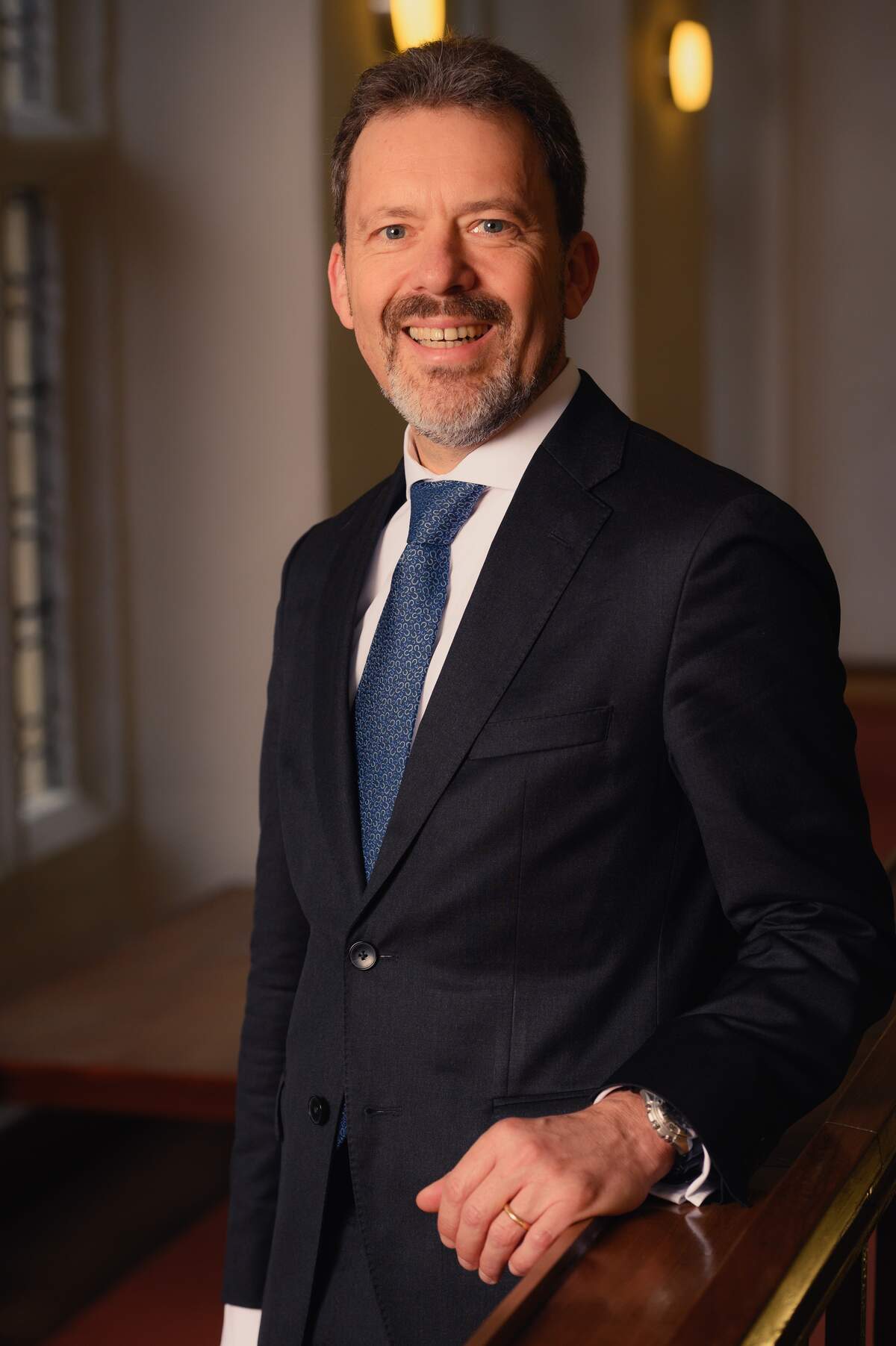
Professor Matthias Ruth, Pro-Vice-Chancellor
Professor Matthias Ruth, Pro-Vice-Chancellor
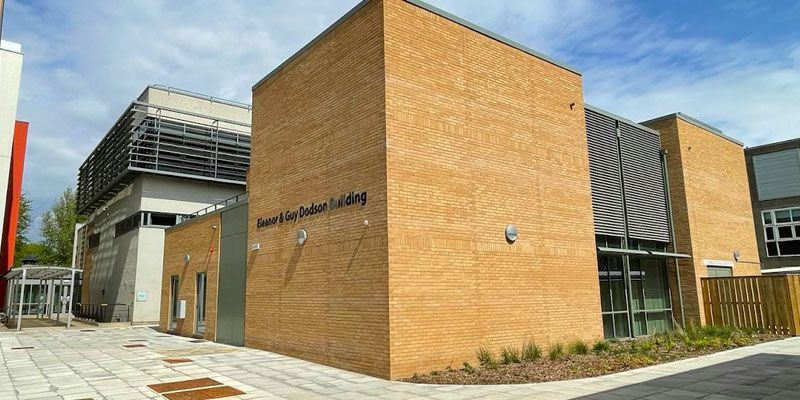
The Eleanor and Guy Dodson building
The Eleanor and Guy Dodson building
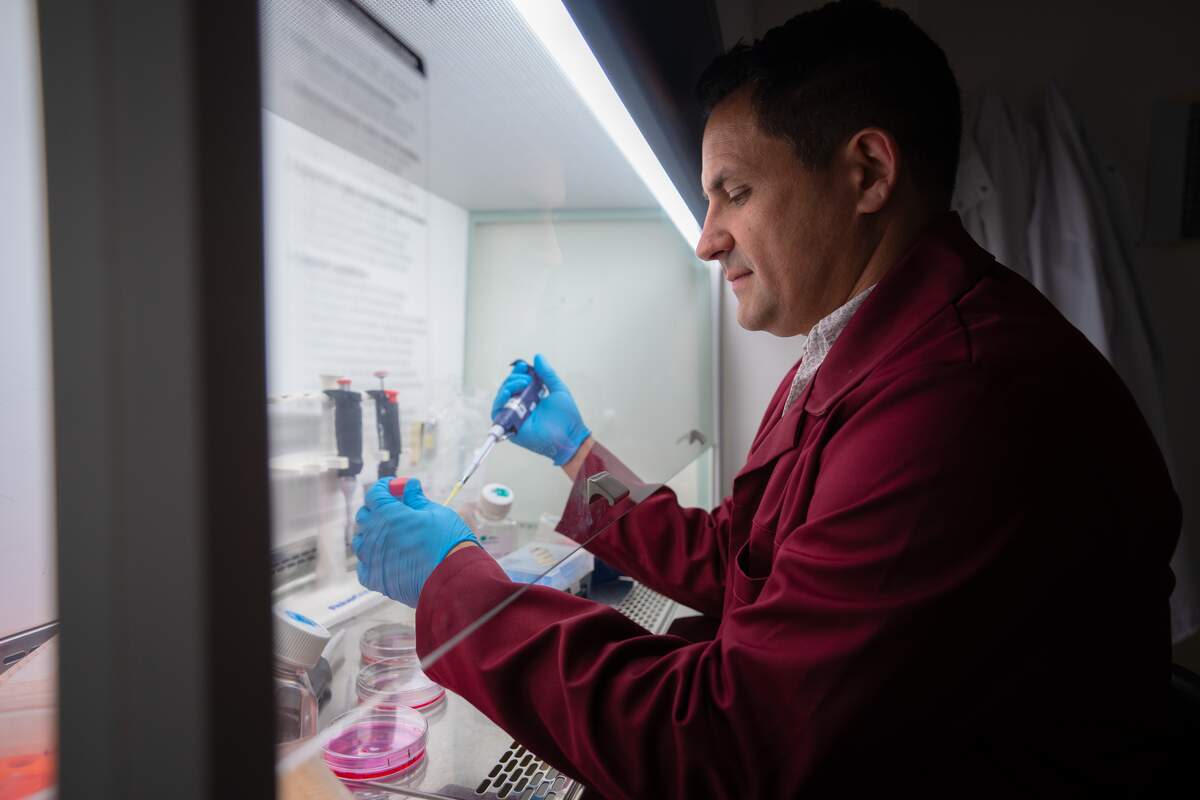
Professor Ian Hitchcock, Director of the Centre for Blood Research in the lab
Professor Ian Hitchcock, Director of the Centre for Blood Research in the lab
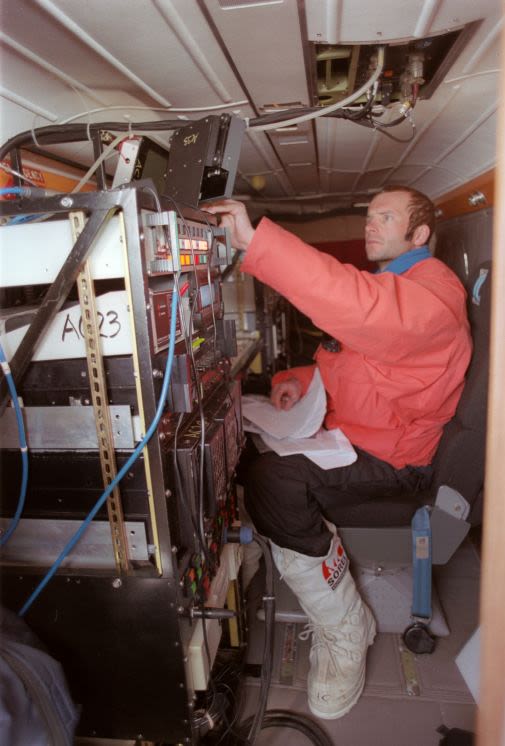
University of York scientist, Dr David Rippin
University of York scientist, Dr David Rippin
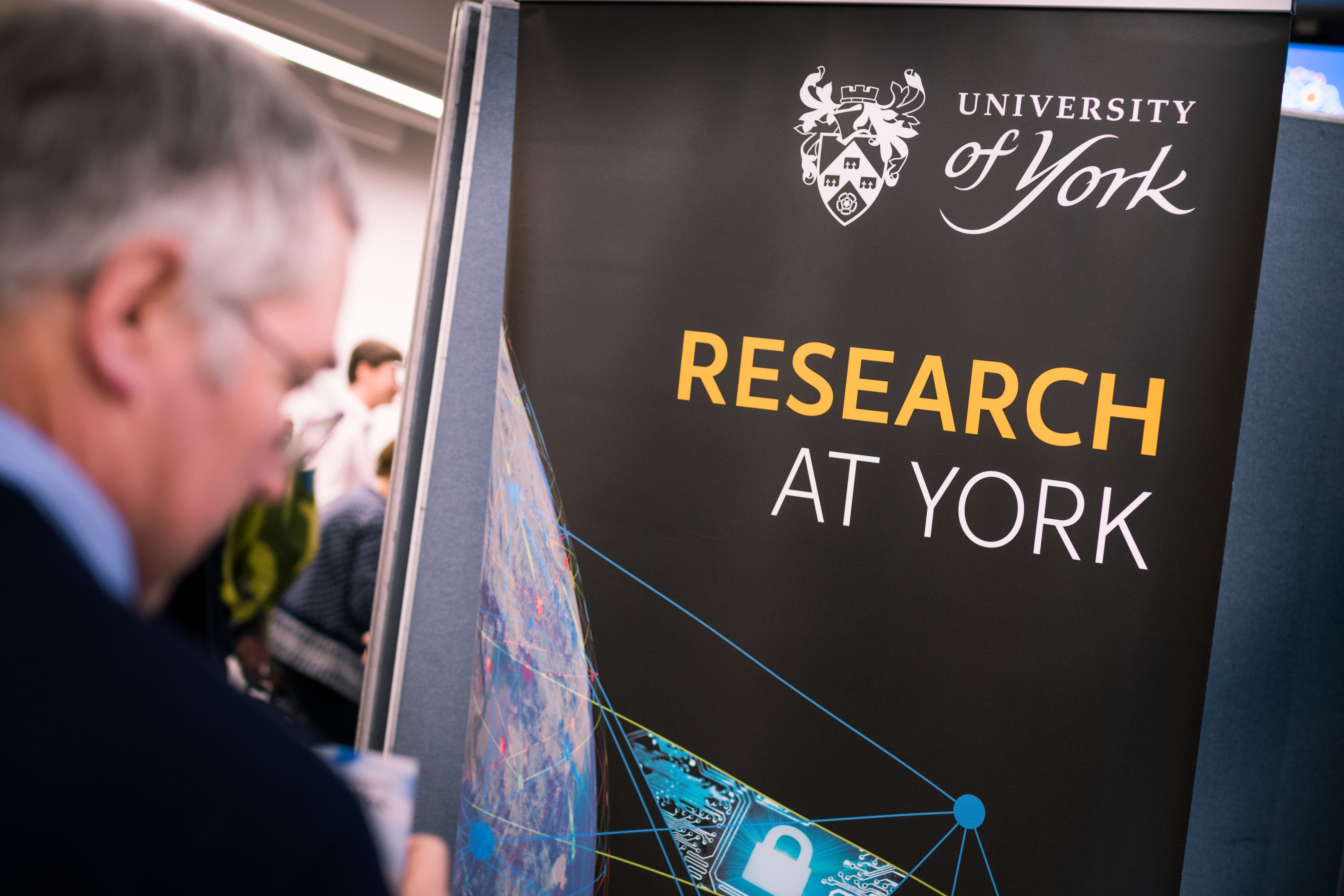
‘Research at York’ banner
‘Research at York’ banner
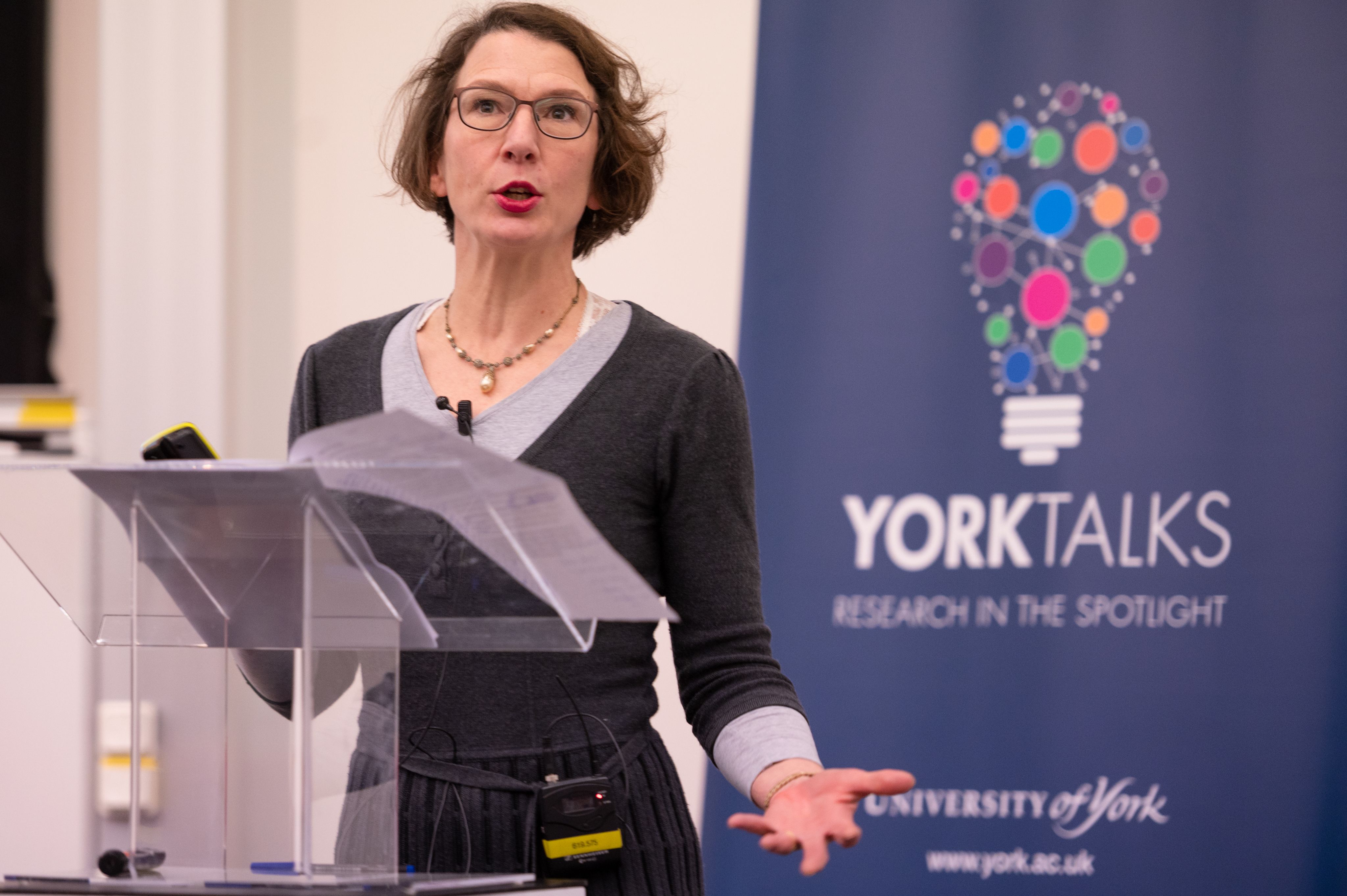
Professor Cordula van Wyhe, Professor of Art History speaking at the 2023 YorkTalks event
Professor Cordula van Wyhe, Professor of Art History speaking at the 2023 YorkTalks event
We celebrate creativity and curiosity across our research, from a project that sheds light on York’s medieval Jewish Community to new datasets of Antarctica's topography that will help to predict future ice loss and sea level rise. We also engage with the public through University-wide events like YorkTalks and the Festival of Ideas, as well as through participation in active projects. We are delighted to see the continued evolution of Streetlife York, currently offering members of the public the opportunity to gain hands-on experience with print media and be part of a brand new Centre for Print in the heart of the city.
We also promote commercialisation activities as a means to increase our impact, such as Teacher Select, which supports staff recruitment and retention issues being felt in many countries.
Our goal as a University for Public Good is to work collaboratively, creatively, and inclusively to conduct research that positively impacts our community now and for generations to come. The recent renewal of the UK’s membership in the Horizon funding programme is very welcome and will help us revive existing and forge new partnerships. As a trusted partner, we have strong alliances across the globe, not just within academia but with third-sector, government and industrial partners. With our local connections to organisations including the City of York Council and N8, we will also continue to have an impact closer to home. Your continued support for us, and sharing your insights and expertise, is a critical part of our work developing and diversifying our partnerships.
By building positive partnerships such as those we hold with you, our College of Benefactors, and working closely with communities on a local and global scale, we're able to explore cultural insights, track societal shifts, and deliver effective solutions as populations adapt to social, economic and environmental change. Thank you for being part of our College of Benefactors - we look forward to sharing further updates with you on opportunities to help us shape the future of this community in the new year.
Below are some highlights from the last year, and key stories from across the University. We hope you enjoy reading these updates, and the diversity of activity and research being undertaken across campus and beyond, all of which has been supported by the incredible generosity you extend to the University of York.
Professor Matthias Ruth
Pro-Vice-Chancellor for Research
Professor Charlie Jeffery, Vice-Chancellor and President
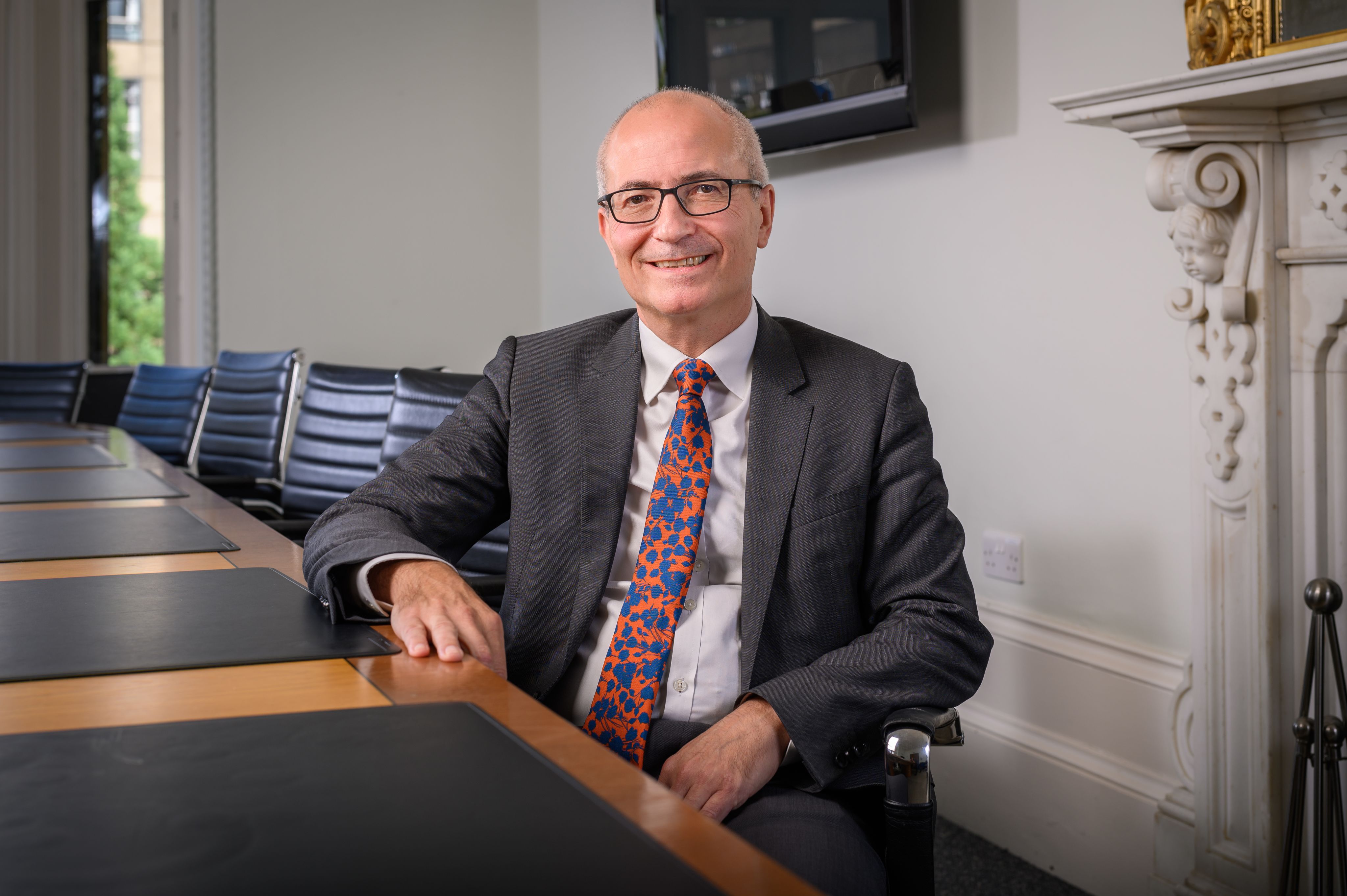
This year, we have been celebrating 60 years of the University of York, and reflecting on not just what we have achieved, but our vision for the future.
We are still a young university, but we are an incredible force for public good - here and across the world. In our first 60 years, we have been guided by a compelling purpose: being single-minded in combating inequality, championing social justice, and advancing opportunity for all.
This commitment has been recognised in several award nominations and achievements over the last few months. In September, we were nominated for University of the Year by Times Higher Education (THE), widely considered the 'Oscars of higher education'. The nomination is based on our response to our Cost On Living Campaign, and how we have looked after each other and those around us.
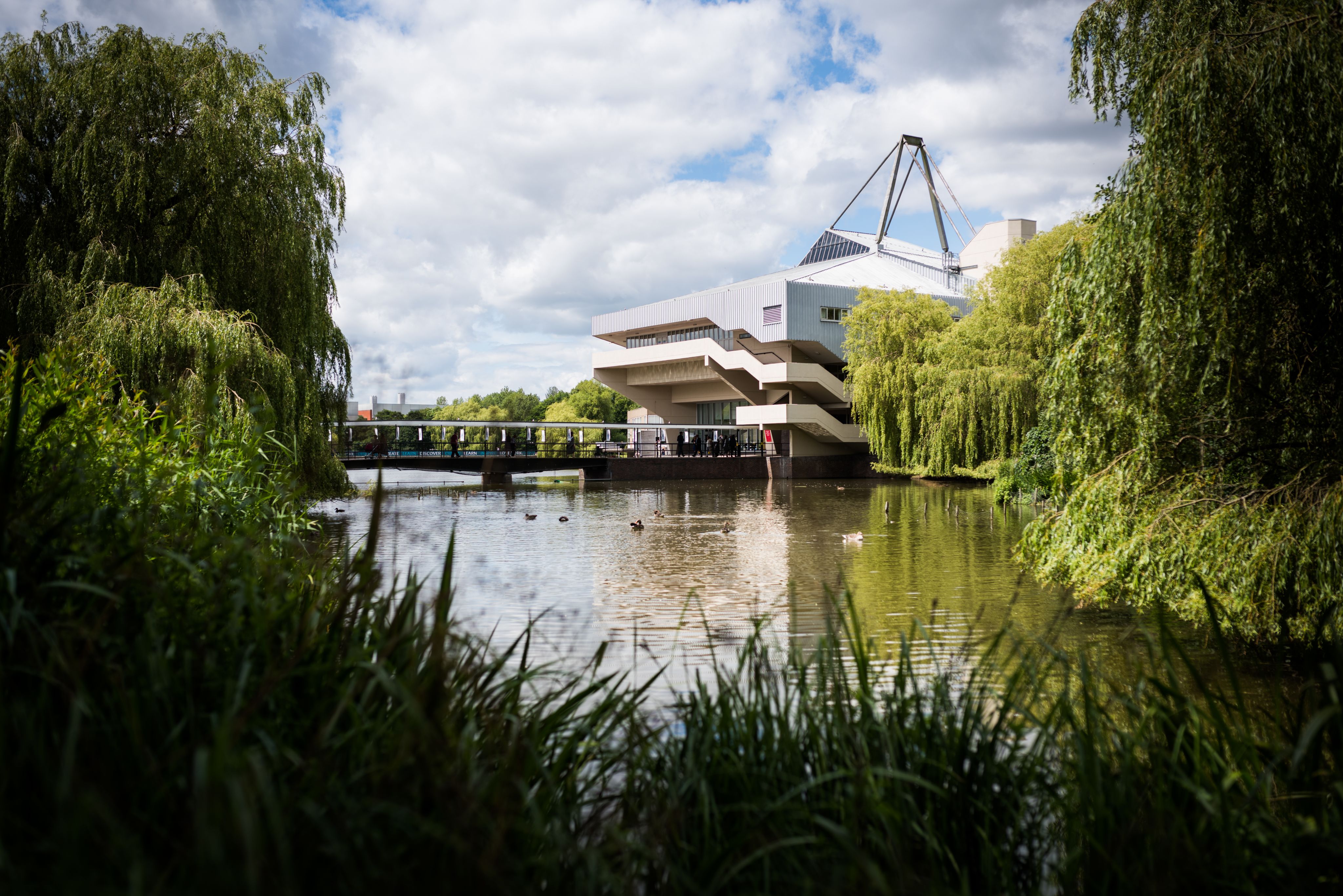
The scale of the challenge presented to York cannot be understated - for our students who had already experienced unprecedented disruption, we worked tirelessly to provide a package of support that was more than just financial. Through our collective agility, we brought together kind and compassionate people from across campus and the city, harnessing the power of philanthropy and collective action to design a package of support that addressed the issues students were facing, as well as researching the drivers of the cost of living crisis and its impact on the wellbeing of people and communities. Results of the University of the Year awards will be announced in December, however, we share the incredible honour of this nomination with you, our most loyal and dedicated supporters.
At the start of the new academic year, we also received news that York had achieved a Gold award in the latest Teaching Excellence Framework. This brilliant TEF outcome gives us real momentum in driving forward our strategy on Education that Empowers. We want the University of York to nurture and fulfil ambitions, and prepare students for an ever-evolving world by designing innovative pedagogies and curricula that are underpinned by technology, and widen access locally and globally to eradicate achievement gaps. Following on from our Top 10 ranking for the quality of our research in last year's REF, these TEF results underline the quality of what we do at York.
As our 60th year draws to a close, we look to the future and to you, our College of Benefactors, who have transformed our ability to tackle the challenges ahead with determination and curiosity. Remarkable advances and investment in exploratory research are enabling us to imagine a safer, brighter tomorrow both for people and the planet. Your insights, experience, and commitment to us have and will continue to help us to achieve our ambitious goals, and better understand how best to serve our students, alumni, and donor community now and into the future. It is the strength of our relationships with our current students and partners that will determine our success in the long term. This was a key takeaway from the recent CASE-More UK Philanthropy Report, released earlier this year.
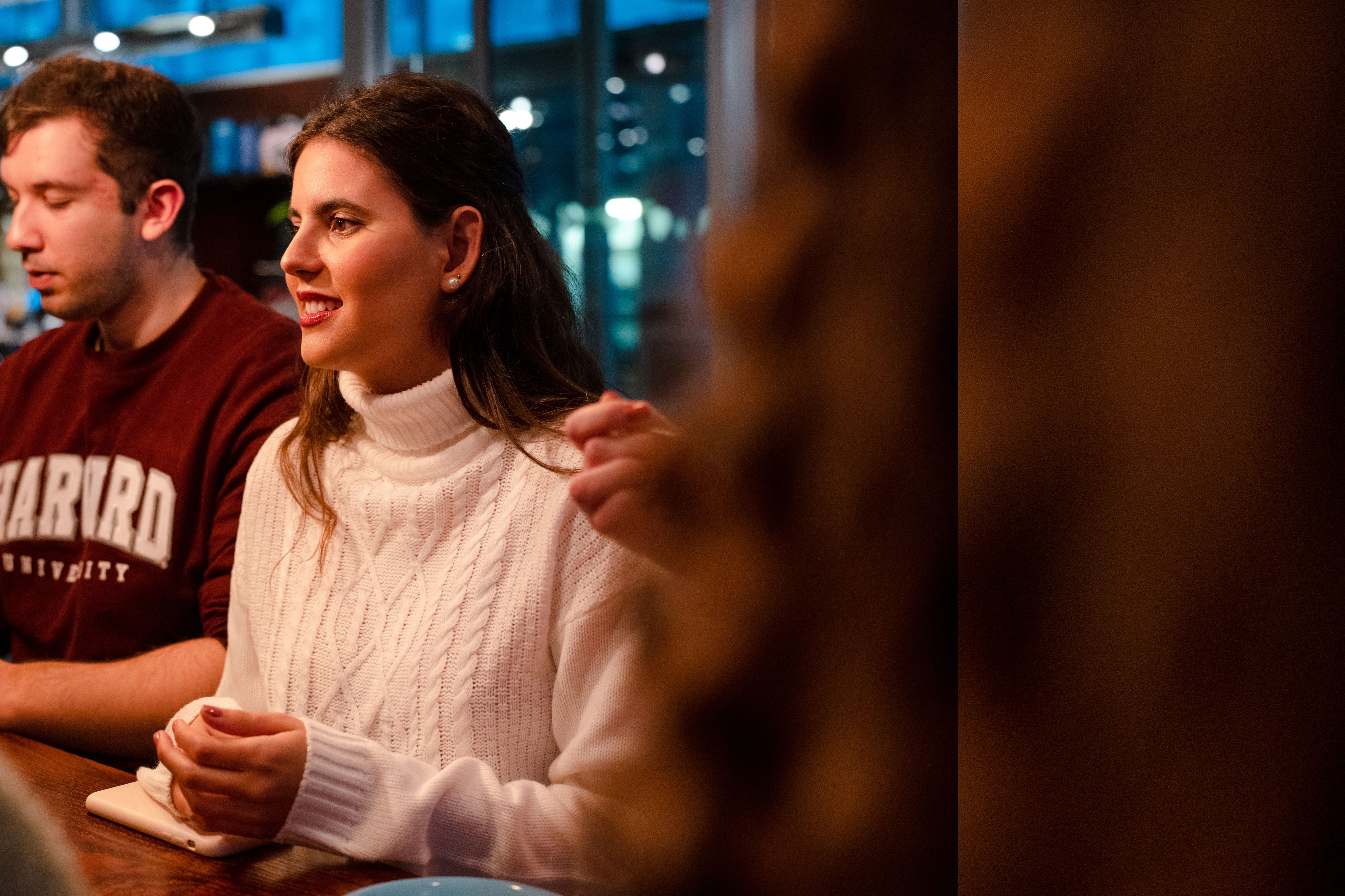
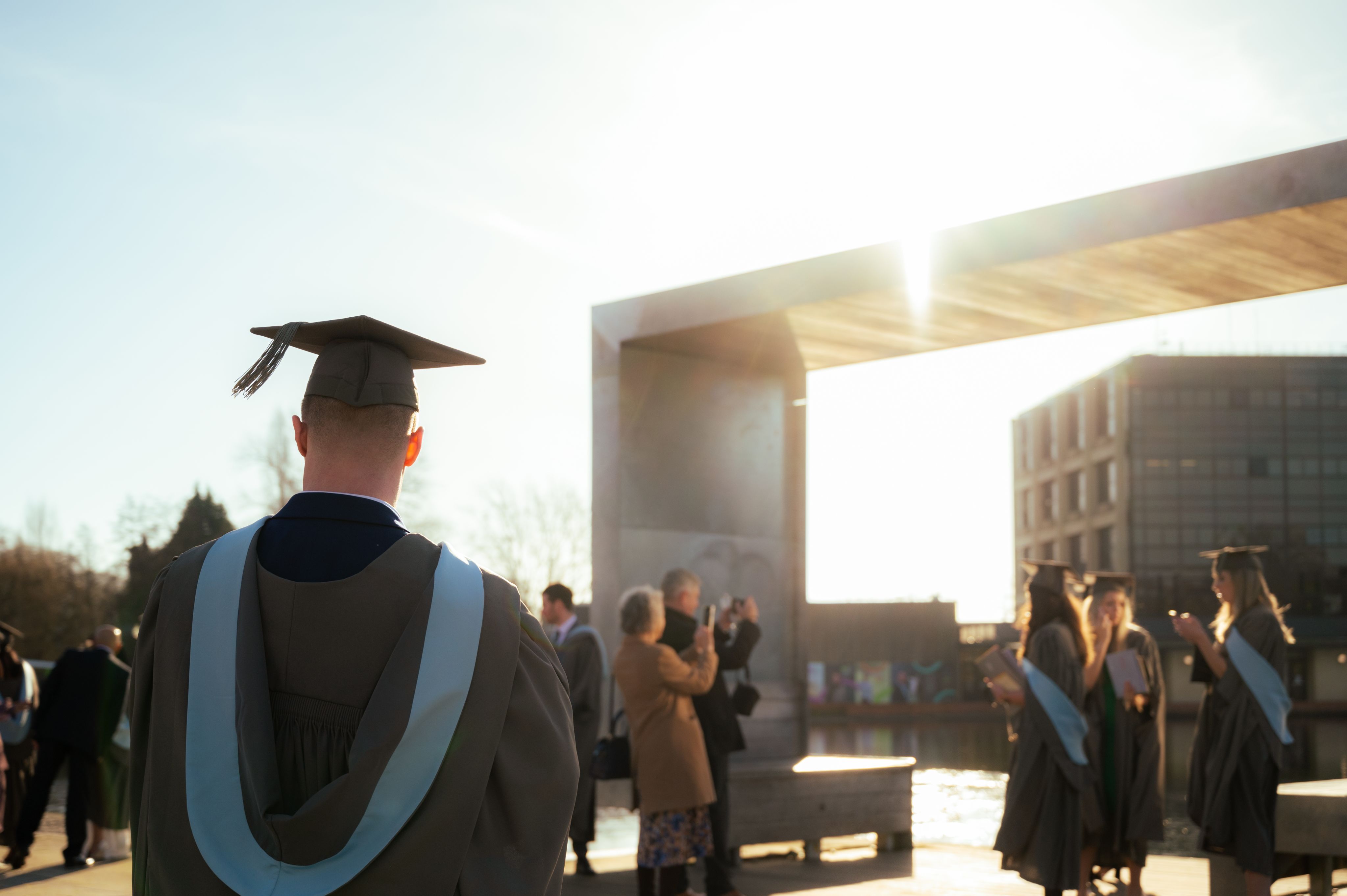
With our founding values as our compass, understanding what is important to our supporters and evidencing the impact of our efforts is critical for us to future-proof and diversify our philanthropic income. Embracing emerging technologies and finding new ways to make our advancement goals more accessible allows us to strengthen our connection to our community, driving our research and development efforts for a future aligned with their priorities.
We have spent 60 years learning, and we know there is so much more to come. Thank you for all that you do as members of our College of Benefactors to make a positive difference now and into the future.
Professor Charlie Jeffery
Vice-Chancellor and President, University of York
Spotlight on the Thanzi Programme

As Professor Charlie Jeffery noted in his letter in the 2022 College of Benefactors Newsletter, researchers at the University of York are part of a new £1.2 million project to support cost-effective and equitable investments for eliminating neglected tropical diseases in southern and eastern Africa.
The Centre of Health Economics (CHE) at the University has partnered with the Global Institute for Disease Elimination (GLIDE), and the East Central and Southern African Health Community (ECSA-HC) on the Thanzi Labwino (‘Better Health’) (TLab) research project, to establish partnerships between academic, policy, and community stakeholders for disseminating new knowledge on disease elimination.
We are delighted to share an update since our last newsletter, from Alexandra Rollinger (Thanzi Programme Manager, CHE University of York). Here, Alex introduces the Thanzi Programme Health Economics Distance Learning MSc Studentships, a newly launched element to the wider Thanzi project, which offers match-funded studentships for talented students from Africa to benefit from a York education:

Thanzi La Onse logo
Thanzi La Onse logo

A student working on a laptop in a cafe
A student working on a laptop in a cafe
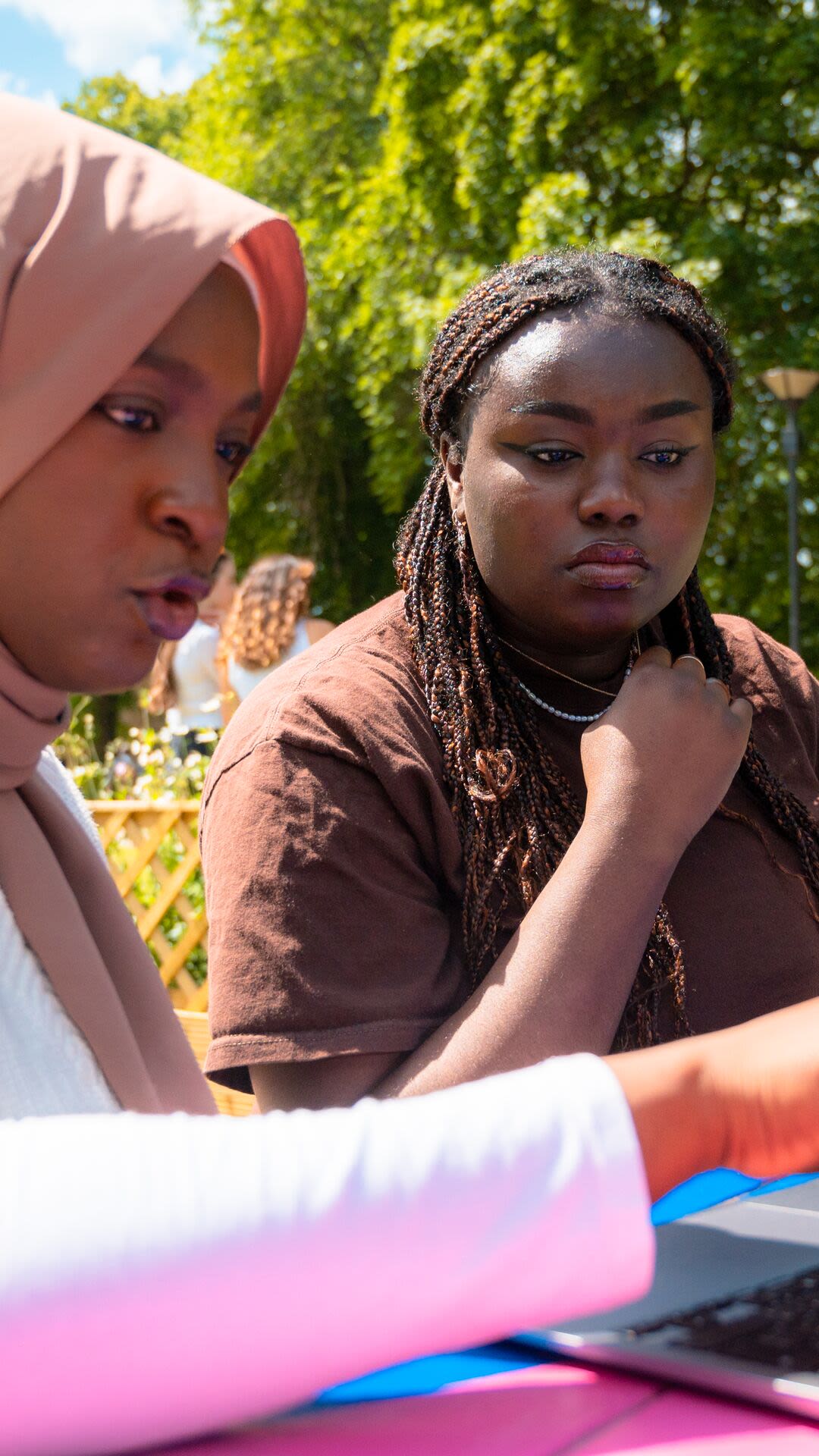
Students working together on a laptop
Students working together on a laptop
Currently, there are very few higher education programmes dedicated to health economics being offered by African universities, and current demand for health economics training by African policy-makers and academics is being met by providers in the Global North, including the UK. This requires African students to leave their home countries, and limits the direct positive impact their training can have on addressing health challenges affecting their communities.
To address this challenge, we are delighted to have launched the Thanzi Programme Health Economics Distance Learning MSc Studentships. Professor Paul Revill of CHE, Director of the Thanzi Programme and Principal Investigator for Thanzi Labwino, commented about the project and its research and capability-building aims:
“Researchers want their research to make a positive difference in the world. This can be achieved by affecting 'decisions' of some kind and in healthcare the decisions that are particularly important are those of health policymakers, for instance working in ministries of health.
Health policymakers, for their part, try to do the best with the limited evidence they have available to them. They need relevant research to guide their decisions. But these two communities - researchers and policymakers - often work in isolation. Thanzi Labwino aims to bring them together, generating and using evidence on healthcare resource allocation and on neglected tropical diseases especially.
If we succeed, better and more suitable healthcare will be provided, leading to reductions in disease burdens and improvements in population health.”
The Thanzi Programme Health Economics Distance Learning MSc Studentships were funded by the University of York through a generous match-funding grant, which was unlocked thanks to the award of the Thanzi Labwino (Better Health) research project by the Global Institute for Disease Elimination (GLIDE), based in Abu Dhabi. The funding allows the Thanzi team to offer 12 talented African students (spread across two cohorts) the opportunity to complete the long-established Health Economics Distance Learning programme (HEDL) and achieve an MSc in Health Economics part-time, over three years.
The HEDL allows students to continue working, with employers supporting our students to commit up to 20 hours per week towards their studies, recognising the return benefit of providing opportunities for them to apply their new skills to their roles.
The first cohort of Thanzi Studentship recipients began their studies in September, with a range of professional experience across the group - from public planning and policy to academia. From over 250 applications, representing students from 20 African nations, 8 individuals were selected for studentships, demonstrating the enormous demand for training in this field.
“My goal is to become an independent health economics global health researcher and a health economics lecturer. To successfully achieve this goal and become an independent health economic scientist, I needed to complement my epidemiology and clinical research skills with health economic evaluation methodologies and skills.
These key competencies will enable me to generate health economics findings that rapidly translate to policy and accelerate delivery of evidence-based interventions in sub-Saharan Africa and mentor the next generation of health economists in Africa.”
It is a huge honour to be able to support these talented individuals in pursuing further training in Health Economics. Capability building at the individual and organisational level is a key pillar of activity for the Thanzi Programme; without strong local capability in fields such as health economics, research evidence cannot inform health policy as effectively. We are very keen to facilitate a 'two-way street' of knowledge sharing between the Thanzi Studentship recipients and our research/teaching teams here at York, and to listen and learn from our students on how we can continue to enhance York’s health economics curricula to reflect the unique health challenges facing Global South settings.
Alexandra Rollinger
Thanzi Programme Manager
CHE University of York
The Thanzi team is keen to continue to offer this opportunity to talented African studies beyond the two cohorts currently funded. For more information about how you can support the continuation of this programme, contact helen.bradley@york.ac.uk or thanzi-project-studentships@york.ac.uk.
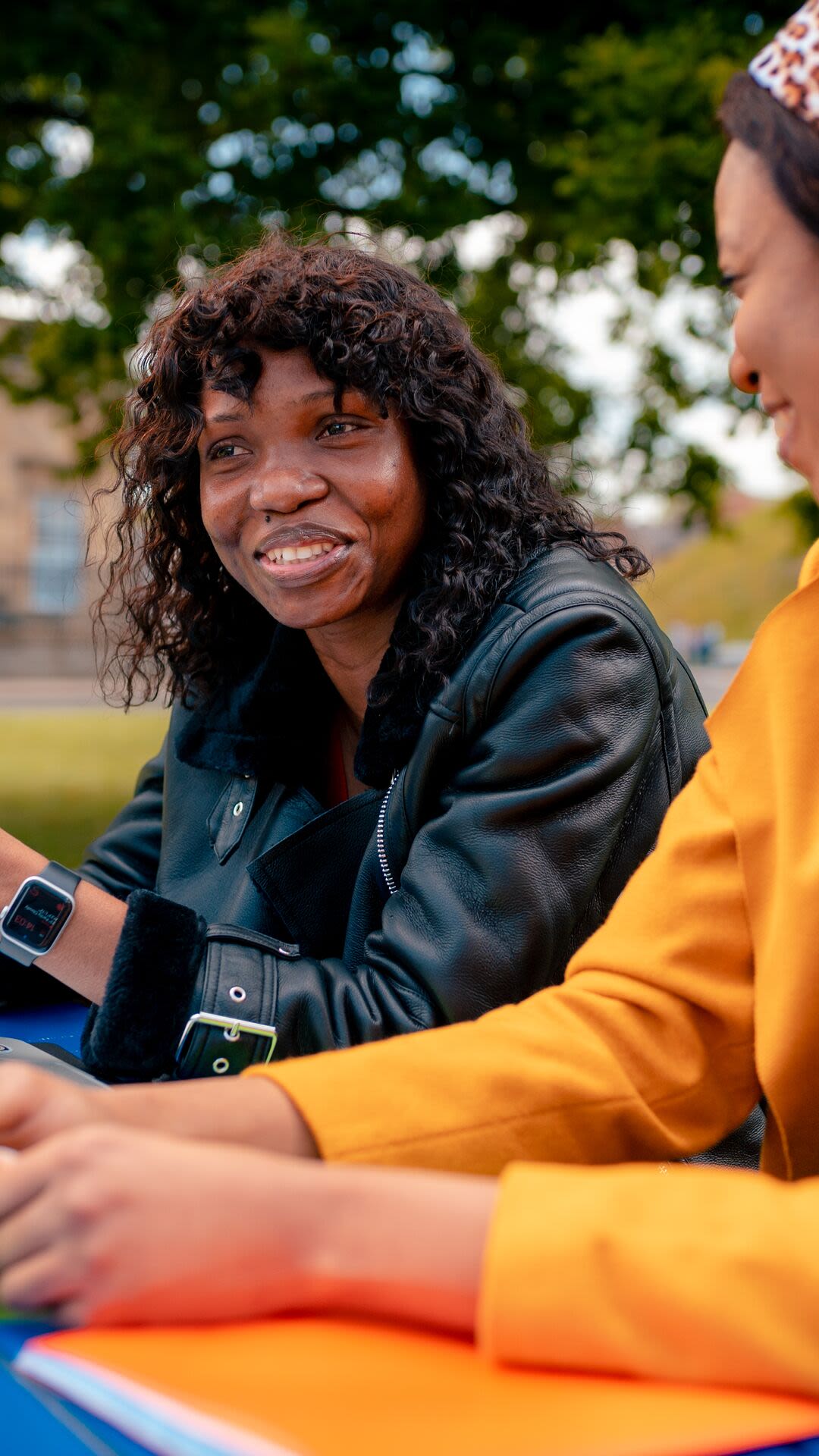
Students in conversation working together on a laptop
Students in conversation working together on a laptop
Spotlight on GenerationResearch
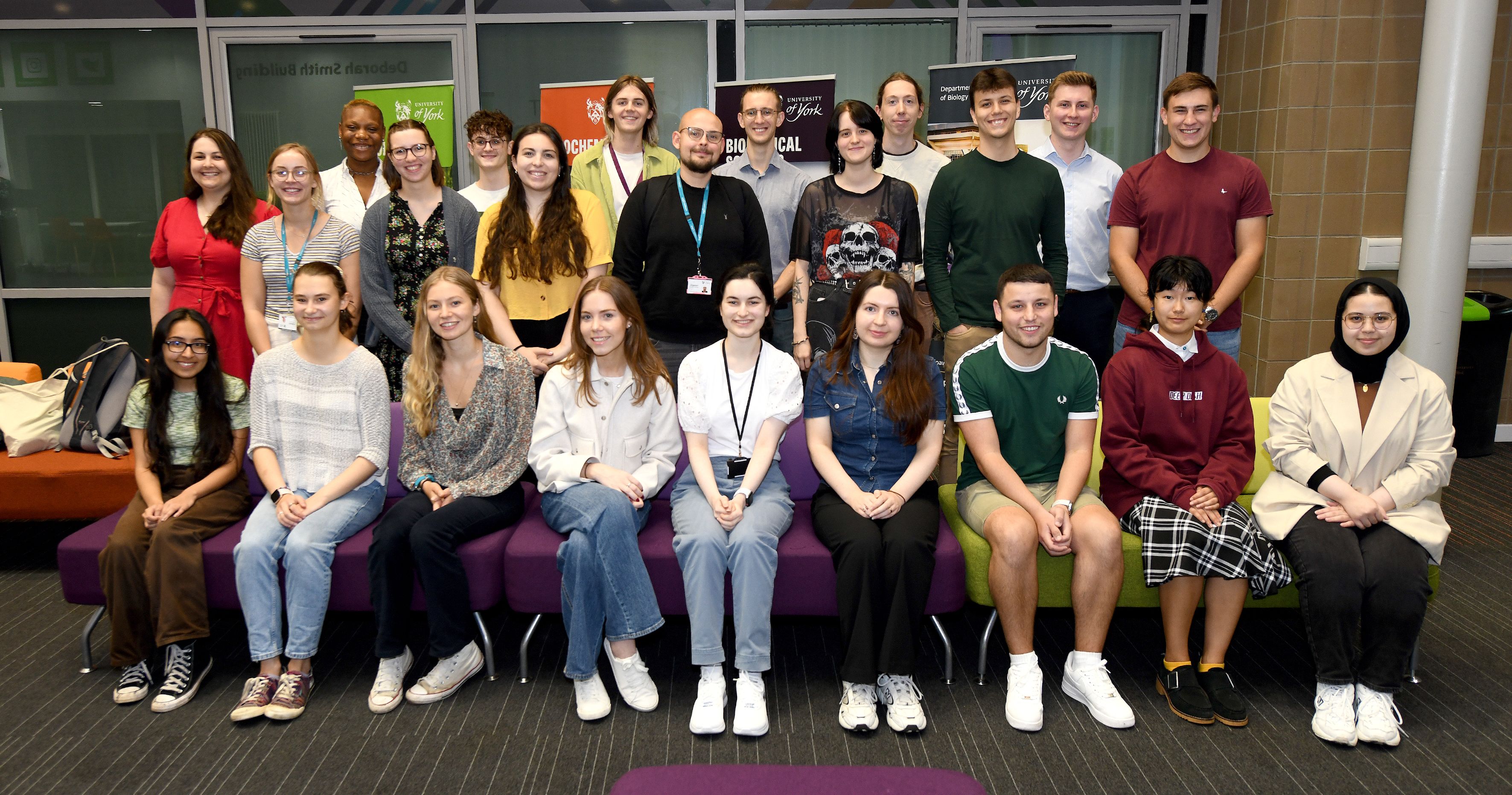
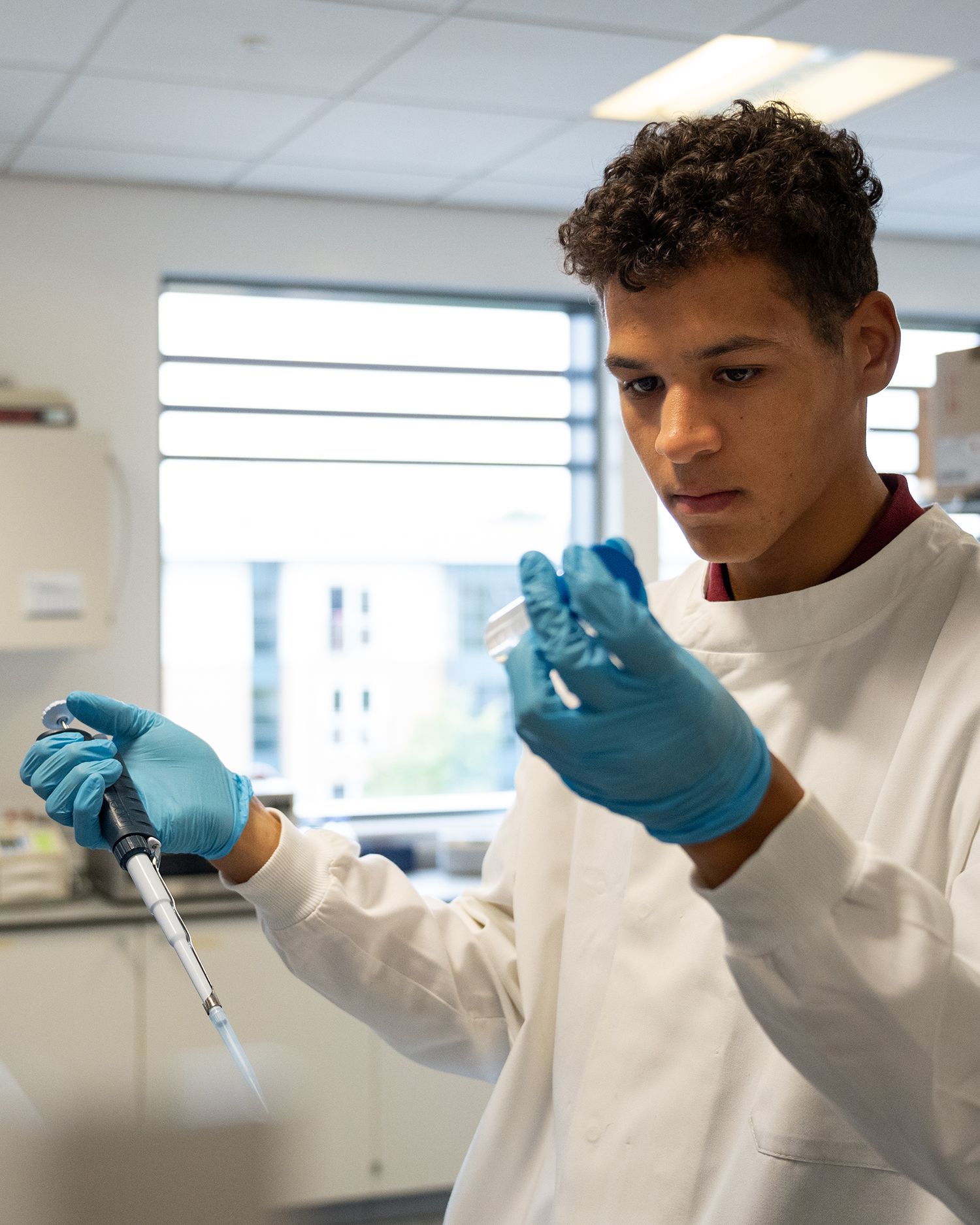
Seb, GenerationResearch student working in the lab
Seb, GenerationResearch student working in the lab
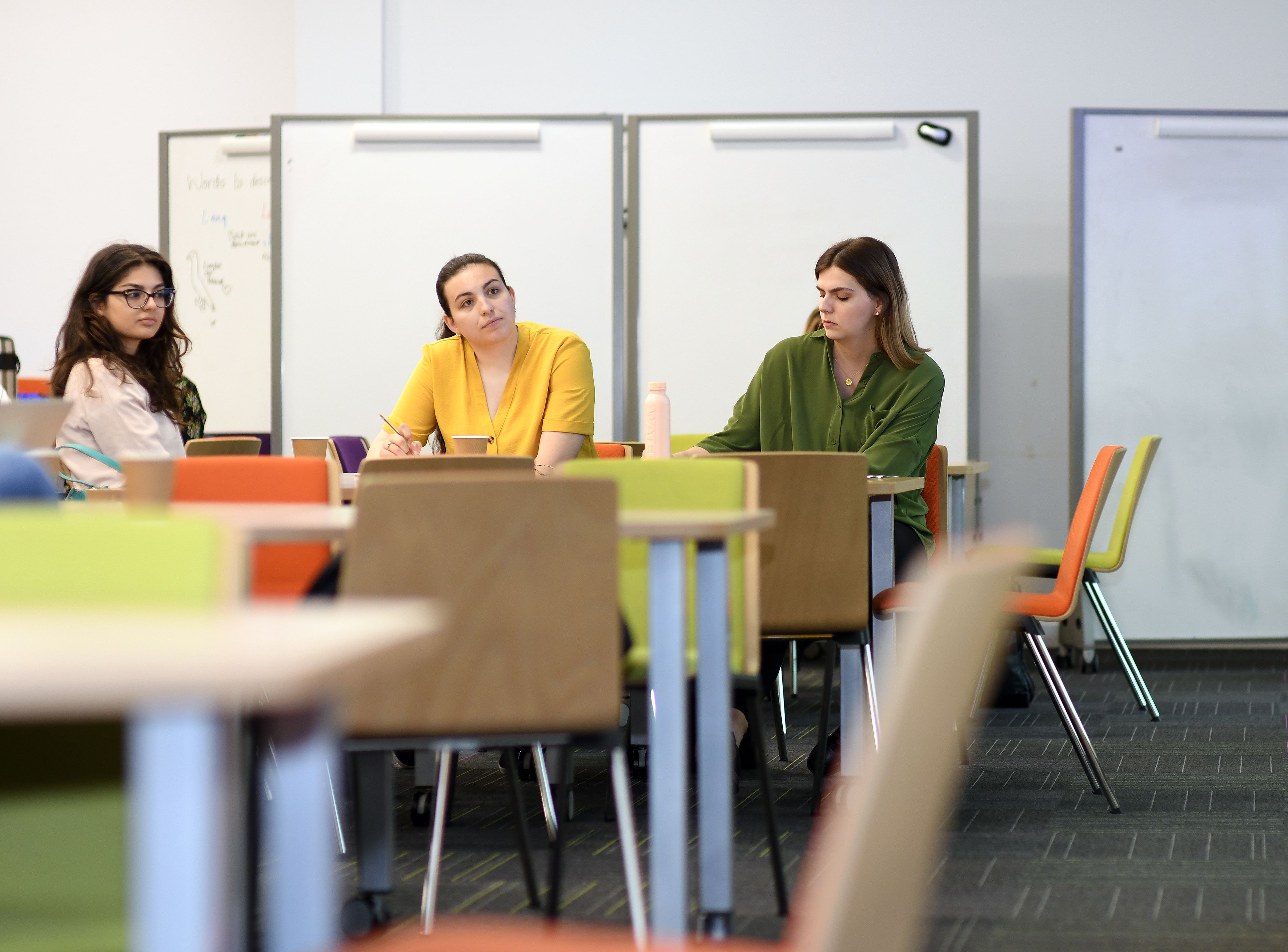
Students watching presentations at the GenerationResearch Symposium 2023
Students watching presentations at the GenerationResearch Symposium 2023
Delivering our research ambitions for the long term requires investment in the future. Through our curiosity-driven research and engagement with trusted partners, we tackle current challenges and lay the foundation for addressing issues not yet known. One of the ways in which we are future-proofing our research capabilities and capacity is through nurturing talent, and supporting the development of the scientists of the future outside of the classroom.
GenerationResearch provides authentic paid studentship positions across disciplines in a range of technical and research projects, widening access to all university students in order to be inclusive and diverse in answering the question; who will our next generation of scientists be?
GenerationResearch was founded by staff in the Department of Biology at the University of York in 2020 to provide 8-10 week fully-paid research or technical studentships that allowed students to gain first-hand experience of working in a laboratory or technical setting whilst addressing barriers to accessing opportunities. As the cost of living crisis continues to impact our students, for many, accessing relevant industry experience is out of reach, with many laboratory and industry summer opportunities being offered on a voluntary basis.
GenerationResearch was created to address this inequality - supporting students to access paid experience, and equipping them with the support and mentorship to help them navigate the industry and pursue their chosen careers in science and technology.
It has since grown from 8 to 35 summer studentships annually, and 3 fully-funded Masters by research studentships, open to students from universities across Yorkshire (including The Universities of Leeds, Sheffield and York as part of The White Rose University Consortium). Our ambitions to shape the next generation continue to grow across all educational levels, including PhD studentships.
At least 50% of studentships are awarded to students from underrepresented backgrounds. Projects often involve real-life research, enabling students to contribute directly to the advancement of science, positively impacting wider society.
“GenerationResearch allowed me to work part-time doing something that I enjoy and also something that's benefited me in the long term. I know some students that were able to volunteer in labs during their summer holidays and do a similar type of thing because they had financial support from their parents, whereas I didn’t.”
“My placement experience has changed my perception of what my entire future could look like. I will look back on this summer as one of the most formative experiences of my life and I’m incredibly grateful to GenRes for the opportunity.”
We are also delighted to share with you some of the highlights of the 2023 GenerationResearch Symposium, an annual event bringing together our GenerationResearch students, their studentship supervisors (many of whom are early career scientists), and our supporters.
The 2023 Symposium saw a vibrant mix of presentations, digital posters and discussion. The students eloquently presented the results of their placements, and confidently answered questions from the room. Each student spoke of their excitement about their field of study, how their studentship has opened their eyes to future career paths, and how grateful they are to GenerationResearch supporters for giving them this opportunity. The closing reception enabled the students, supervisors and supporters to toast to their experiences and share their gratitude.
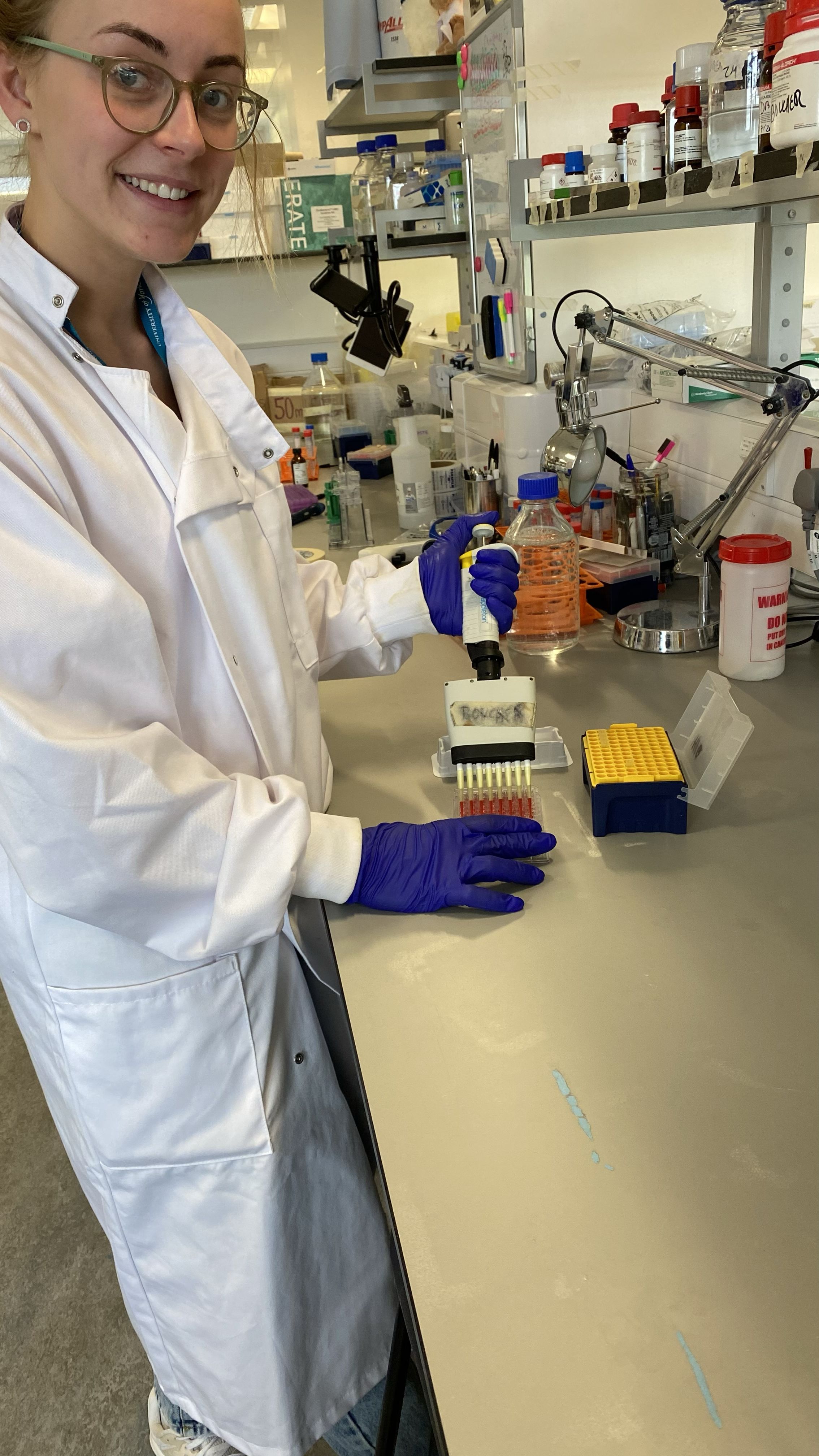
Jadie, GenerationResearch student working in the lab
Jadie, GenerationResearch student working in the lab
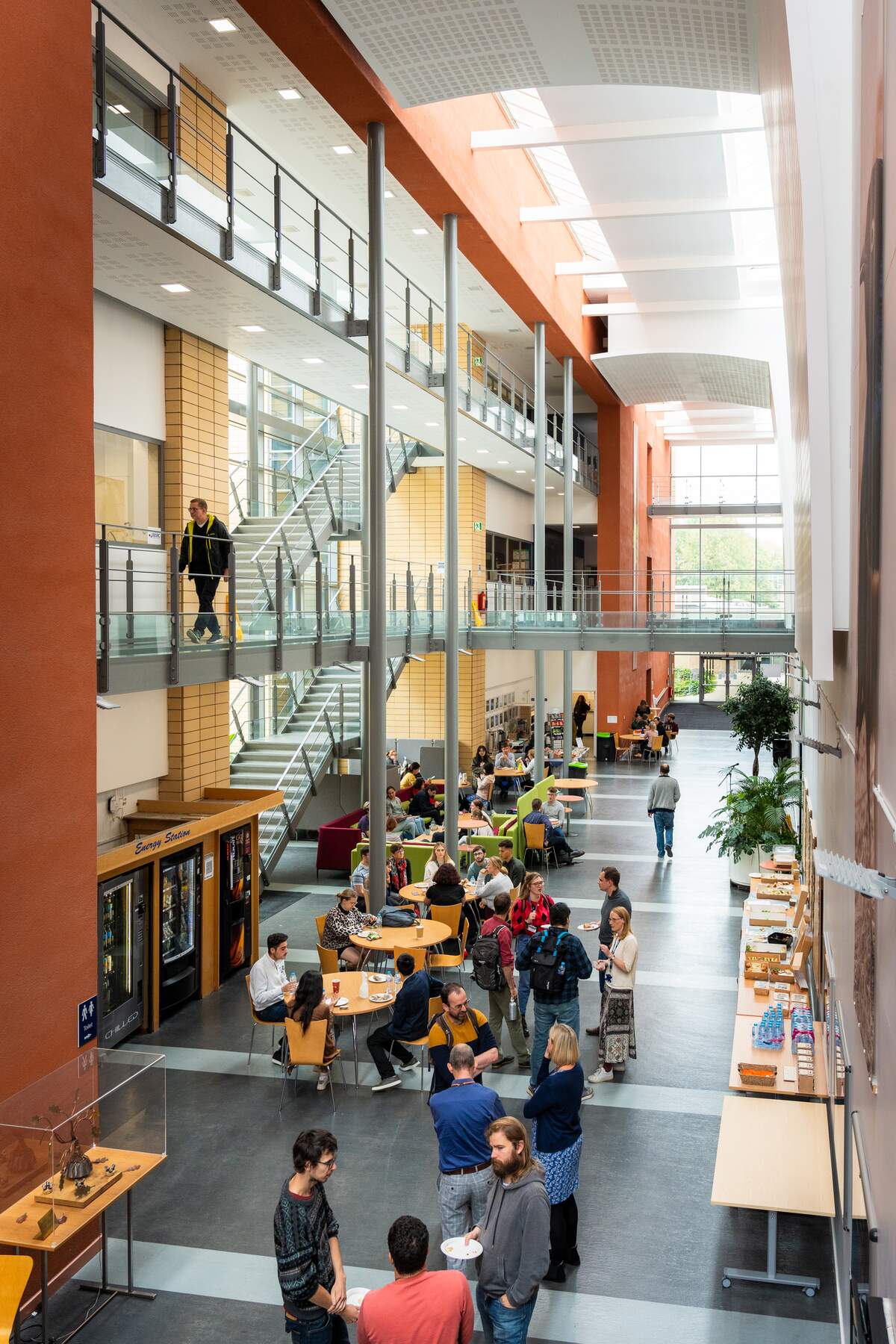
Attendees networking at the GenerationResearch Symposium 2023
Attendees networking at the GenerationResearch Symposium 2023
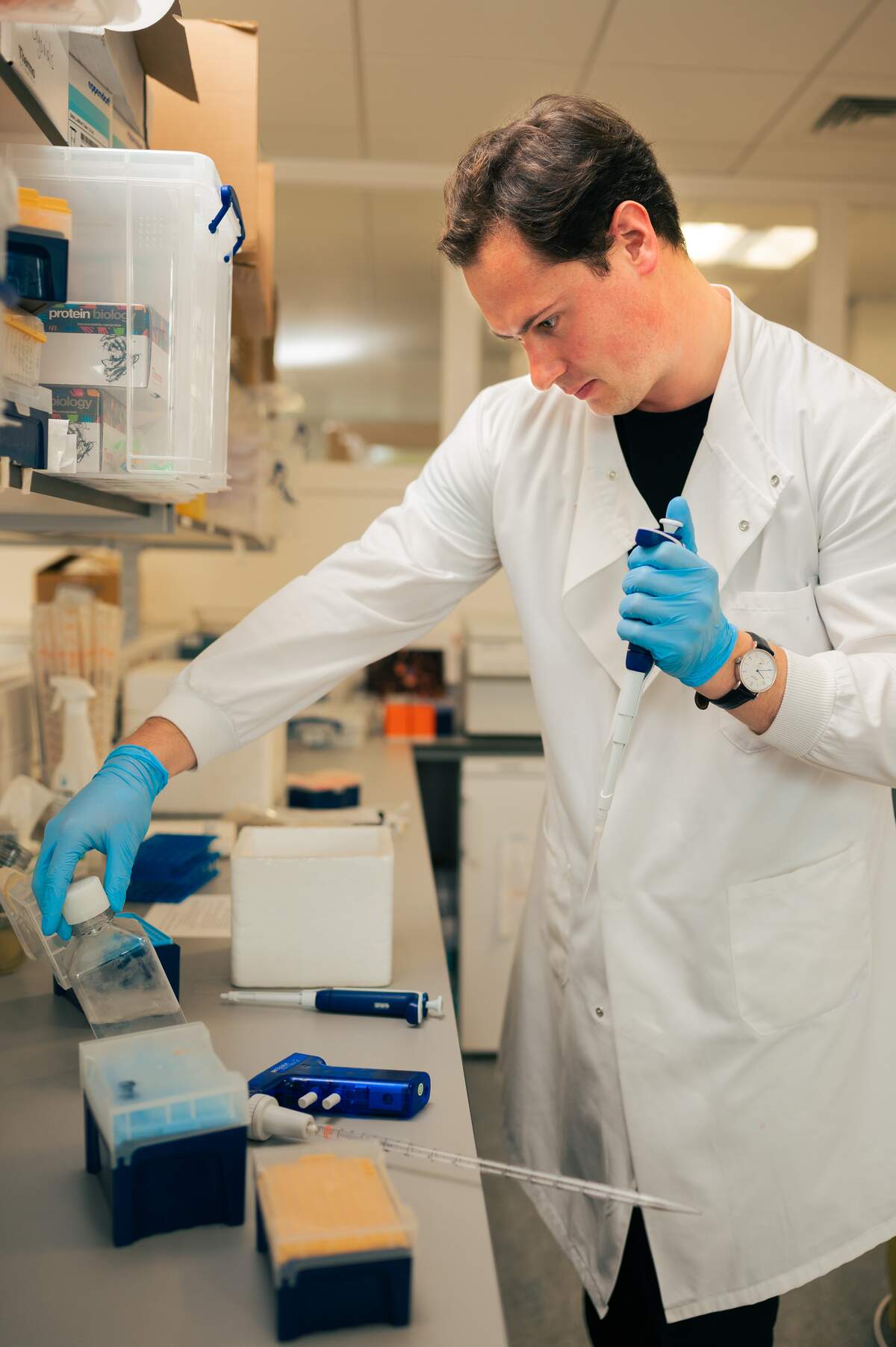
A student working in the lab
A student working in the lab
This year, GenerationResearch was one of our key Giving Day funds. 115 donors came together on 1 and 2 November to raise an incredible £58,218 to support talented students to gain the industry and laboratory skills and experience needed to support their development as the scientists of the future. We are delighted to be able to continue to address barriers to access through the GenerationResearch project, and look forward to seeing this vital work continue in 2024 and beyond.
“We are so thankful to all of our supporters who hosted and sponsored our students this year. Providing these crucial opportunities to students has an enormous impact on their confidence and early development of research skills and is key in engaging our next generation of scientists”
GenerationResearch exemplifies the commitment we share at York as part of our new Research Strategy, to creating the conditions and culture within which diverse people, ideas, and approaches can flourish. Through the strength of our partnerships, we can ensure we meet the needs of our students and research community from recruitment to graduation and beyond, creating opportunities that deliver positive change and expanding the impact of our business engagement.
For more information about how you can support the next generation of scientists through GenerationResearch, contact lydia.vdd@york.ac.uk or gen-res-project@york.ac.uk.
Spotlight on IntoUniversity/Westfield (The Place)

As part of our ambition to be the University of Opportunity for the UK, we are proud to showcase two current projects supporting young people locally and in our region. Children and young people are facing significant barriers to attainment and access to higher education both in York, and in our wider region. We are delighted to share with you progress on the IntoUniversity partnership in our region and a new community centre closer to campus, The Place.
IntoUniversity
The University of York was founded on the belief that opening up access to the University matters more than almost anything else. This was a sentiment echoed by our Vice Chancellor, Professor Charlie Jeffery, at the opening of the IntoUniversity Hull East Learning Centre earlier this year.
In the last newsletter, we shared that we were looking forward to the imminent opening of our new IntoUniversity Learning Centre as part of our partnership with IntoUniversity and the University of Hull. The Hull Centre has now been open for just over a year, and we are thrilled to share with you a video about our partnership with IntoUniversity, featuring footage of the launch event in March, with a message of thanks to our donors for making the opening of the Hull East Centre a reality.
But there is more still to do. In 2024, our work will continue on a new centre in Bridlington, supporting children on the Yorkshire coast. We also welcome the University of Lincoln to our partnership with the University of Hull and IntoUniversity, supporting development of a further centre in Grimsby. With your help and our collective action, we can ensure that more children in North Yorkshire and Lincolnshire have the support they need to achieve their potential and realise their aspirations.
We look forward to sharing further updates on the development of the Bridlington and Grimsby IntoUniversity Learning Centres in 2024. Find out more about the project and get in touch to explore a centre visit with us.
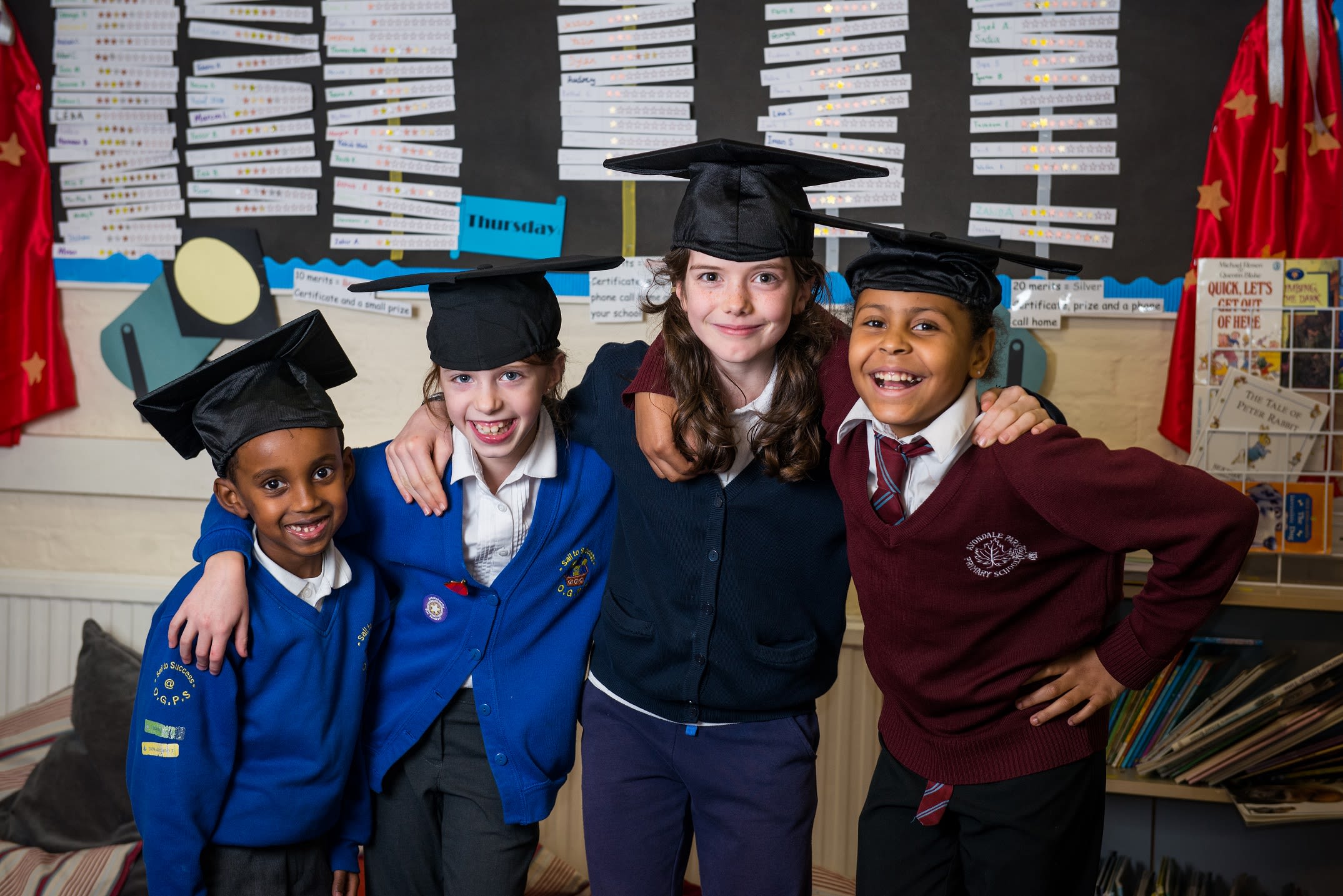
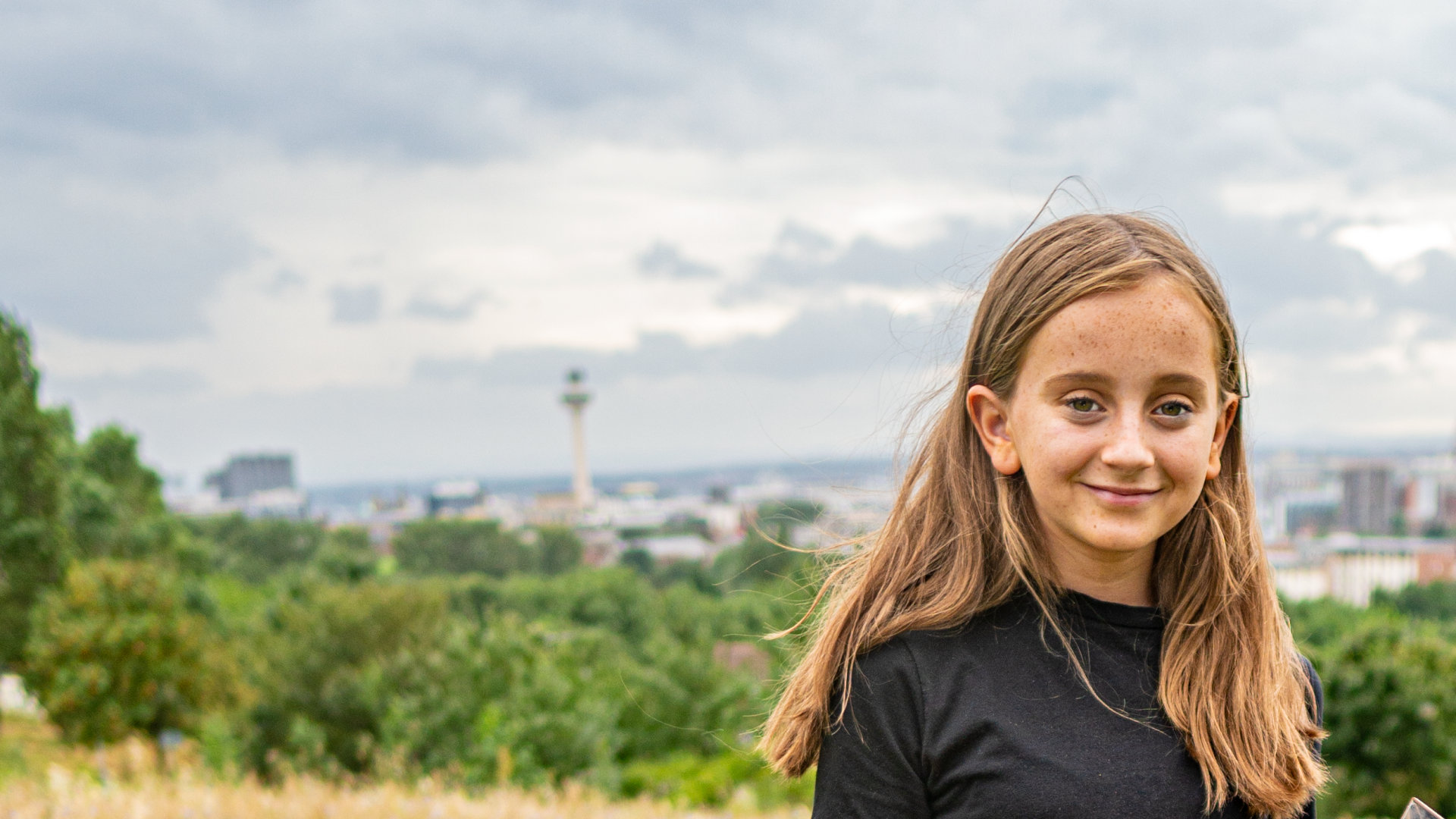

The Place logo
The Place logo
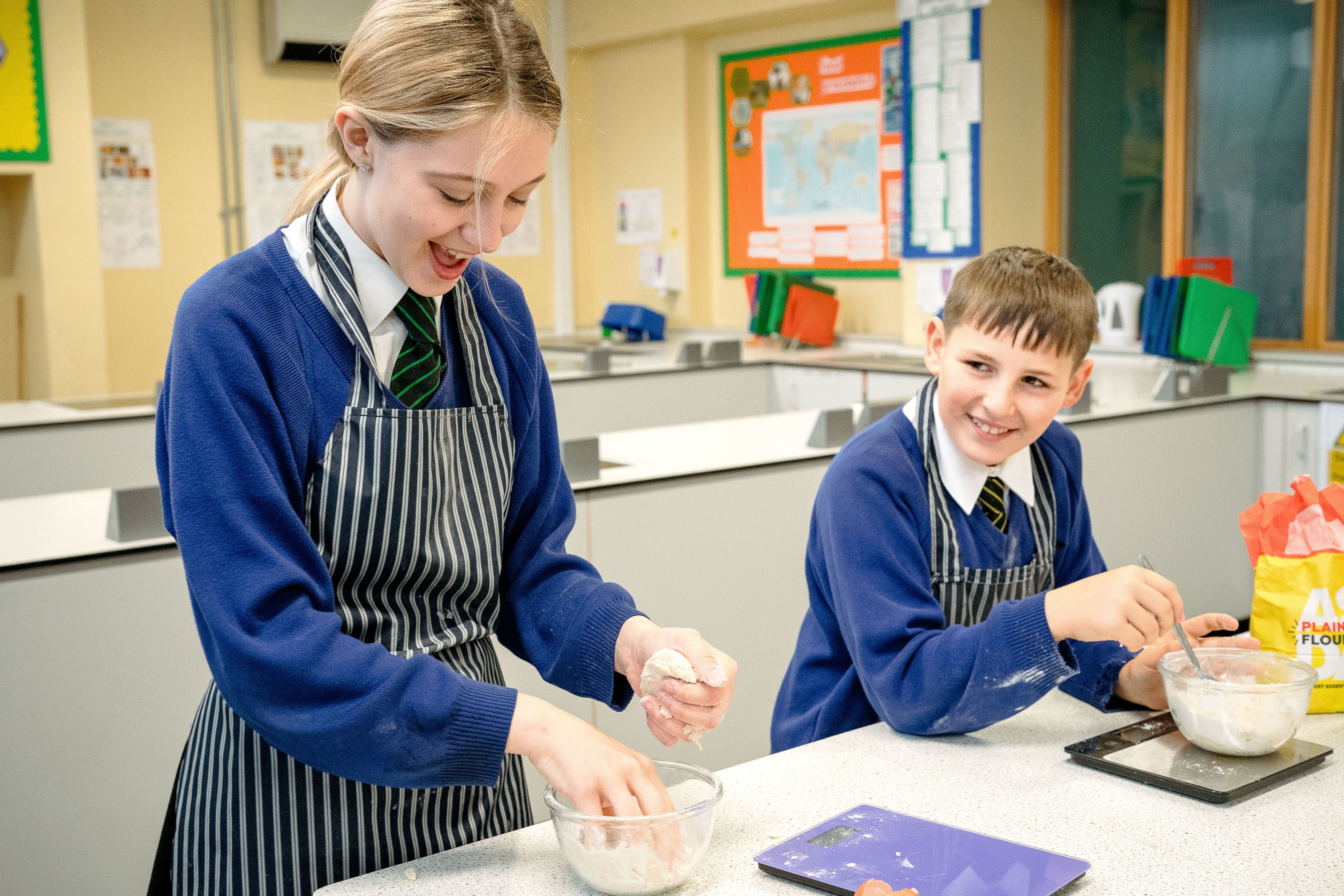
Credit: The Place
Credit: The Place
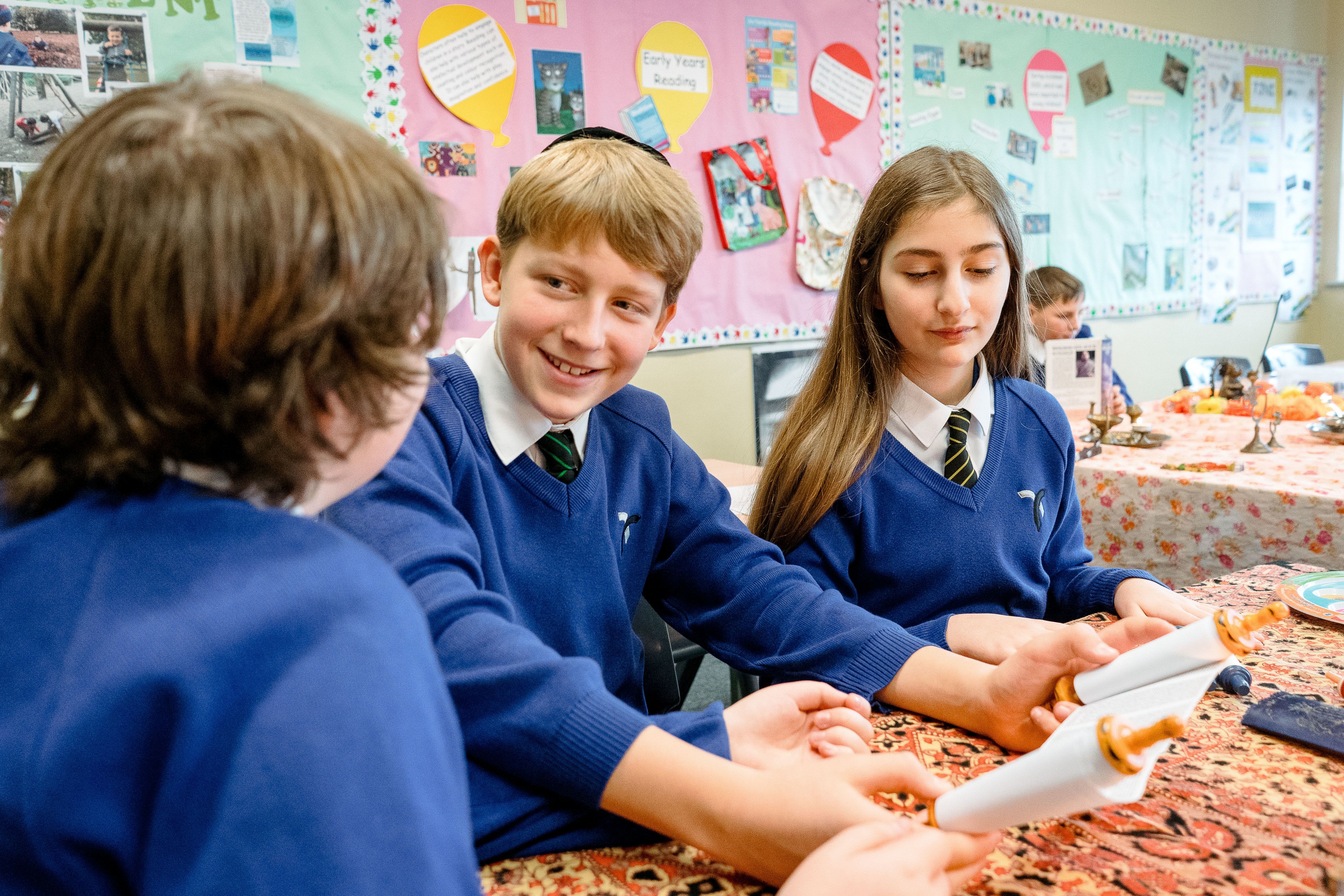
Credit: The Place
Credit: The Place
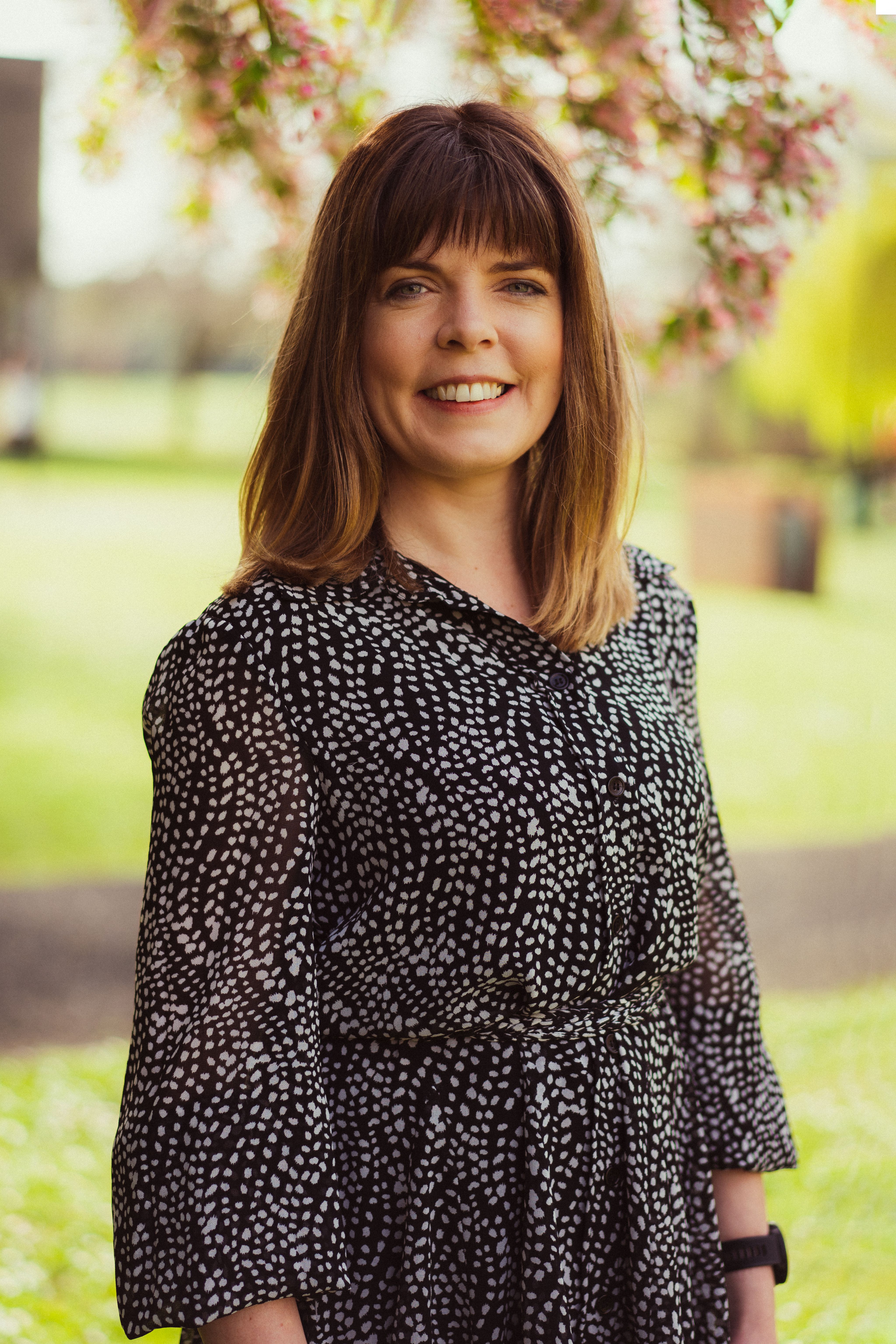
Rebecca Clark, Head of Access and Outreach
Rebecca Clark, Head of Access and Outreach
The Place
On 30 October 2023, we also opened the doors to The Place, our new community-embedded learning centre in the heart of the Westfield area of York. Learning from the success and impact of our partnership with IntoUniversity addressing gaps in learning and progression in our wider region, The Place focuses our resources and attention on young people needing support within the City of York.
York is a city of contrasts, with 41 areas of York in the top 10% most affluent areas in the country. Alongside this however sits areas of significant poverty and deprivation. Six wards in York, home to 10,000 people, are among the most deprived in the country (including Westfield, Foxwood and Chapelfields). The gap in progression to higher education between poorer York students and their more affluent peers is one of the widest in the country.
While the number of young people affected in York may be small relative to larger cities, this shouldn’t prevent us from taking responsibility for those young people on our own doorstep. The Place is a practical response to the educational inequalities of many of the young people growing up in Westfield, York. This is a collaboration with the University of York, York High School and Westfield Primary Community School and the local community. Our collective vision is to provide a safe space for children and young people to learn and grow and for adults to connect, access support and take part in lifelong learning or training.
The opening of The Place follows a summer of engagement and feedback with residents at community hub drop-ins, on the refitting, refurbishment, branding and delivery of the centre. Consultation also informed the naming process, with ‘The Place’ being selected as a neutral name with no political or organisational branding and somewhere individuals could create their own personal connection.
Now in its first weeks of delivery, The Place will be running a timetable of community engagement, relationship building and activity. The Centre very much depends on local community trust, and belief in our commitment and ambition to the programme. Part of this relationship building will involve the Centre team being in Westfield Primary School at multiple points each week, working with the Senior Leadership Team and children. The team will also have a strong presence in York High School.
“We're incredibly excited to see The Place open at Sanderson Community House. It has taken an incredible amount of work, relying on collaboration and partnership, to get us to this point and we're so pleased that we can now begin providing support to the children, young people and families living in Westfield.
It is an understatement to say that we would not be here now without the kindness, generosity, advice and guidance of our donor community. We are all incredibly grateful for the support you have provided us, through financial donations, in-kind gifts, your time and expertise.
The Place is founded on a principle of partnership. Everything we do will be in collaboration with the people who live and work in the community we are there to serve and the activities we deliver will be provided in partnership with a large number of supporters from across the city. That we can count our donor community as part of this partnership significantly strengthens our offer, it boosts the team to know we have your backing and provides us with the longevity we need to make a real difference. While the building may be open, this really is just the beginning and I look forward to working with you as we move forward”
There has never been a more important moment to invest in York’s young people to ensure that they stay on track to achieve their ambitions. Together, we need to raise just over £2.25 million to fund the centre in its first five years. Find out more about this transformation project and contact us for more info.
Some dates for your diary...

Finally, we are excited to share with you some of the events and talks we have coming up over the next few months. If you would like to know more about any of the below then please get in touch.
OPPA Events:
- Our next Supporter Reception will be held on 15 January 2024 at the Royal Society, London. Book your place.
- Our Chancellor’s Circles of Influence event series brings together a small and select group of alumni, supporters and partners - hosted by our Chancellor Dr Heather Melville - to share, discuss and seek guidance on an area that is critical to the University’s success. Our next event delves into the employability needs and challenges of our international student community, (Monday 28th January, 1pm GMT on Zoom), and the next in person Breakfast Briefing in London is 8am on Tuesday 23rd April. If you would like to take part please contact emma.stent@york.ac.uk.
- The next College of Benefactors dinner will be held on 24th April at the Royal Society of Chemistry, London. Formal invitation to follow.
University-wide talks and special events
- YorkTalks 2024 - a day of inspirational short talks about the world-leading research happening at York. 10th January 2024 - four sessions throughout the day on Heslington East Campus, booking available via eventbrite.
- Would you trust a robot? Join us for the official launch of the Institute for Safe Autonomy on Tuesday 20th February 2024.
- History of Art celebration event - Spring 2024 (more information to follow in the new year).
- York Festival of Ideas will return in June 2024 with the theme of Rediscover, Reimagine, Rebuild. A series of talks and events across the city of York (more information to follow in the new year).
Come to campus
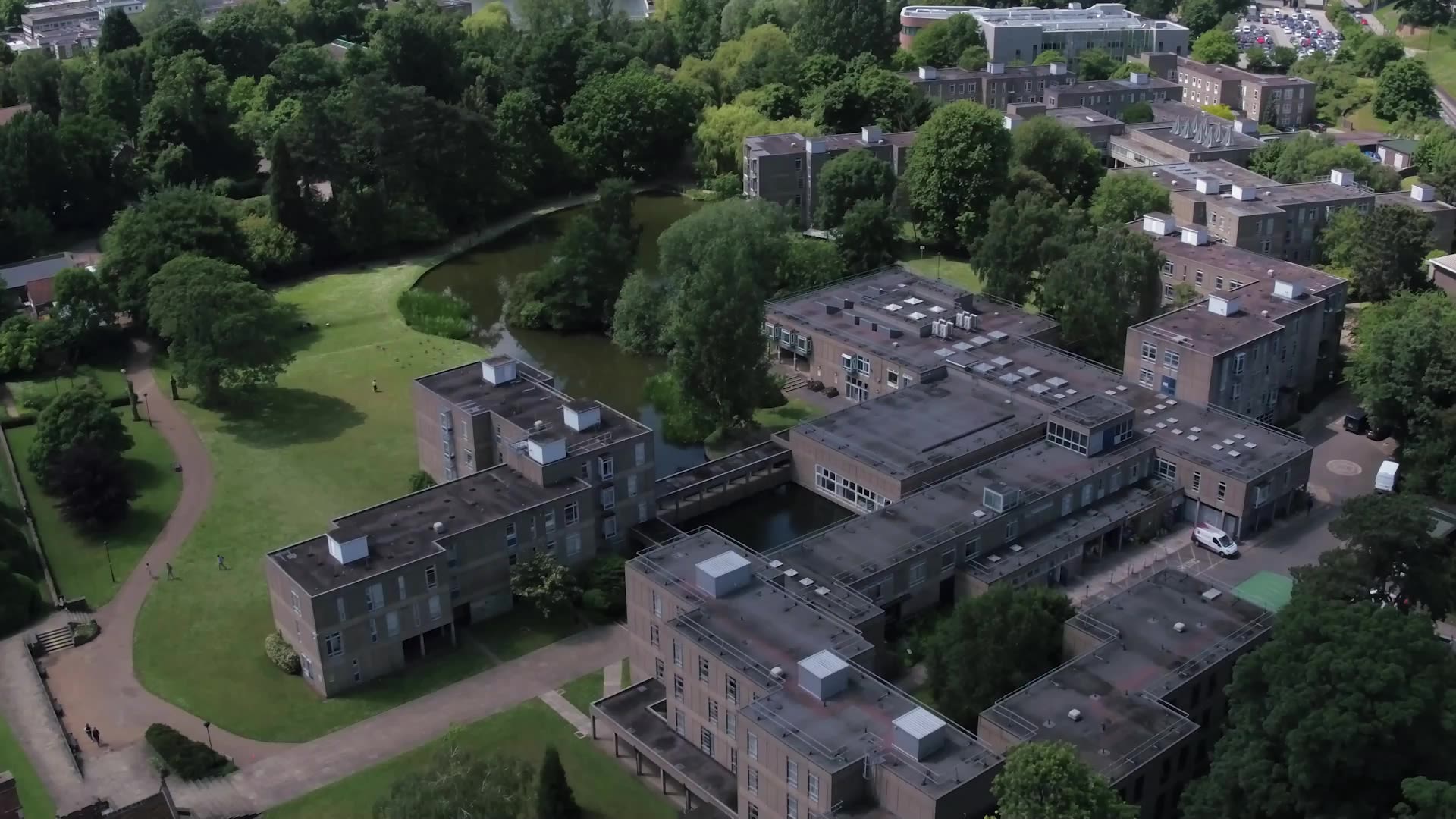
We love welcoming our supporters, donors and alumni back to campus, and would love to arrange a visit with you should you wish to experience campus life in the coming months.
We would be delighted to host you here in York, and we also very much welcome your thoughts and input on the kind of activity you’d like to see as a valued member of our College of Benefactors. If there’s something you’d like to see more of or have an idea for an event you’d like to explore with us, please get in touch and we would be delighted to discuss this with you further.
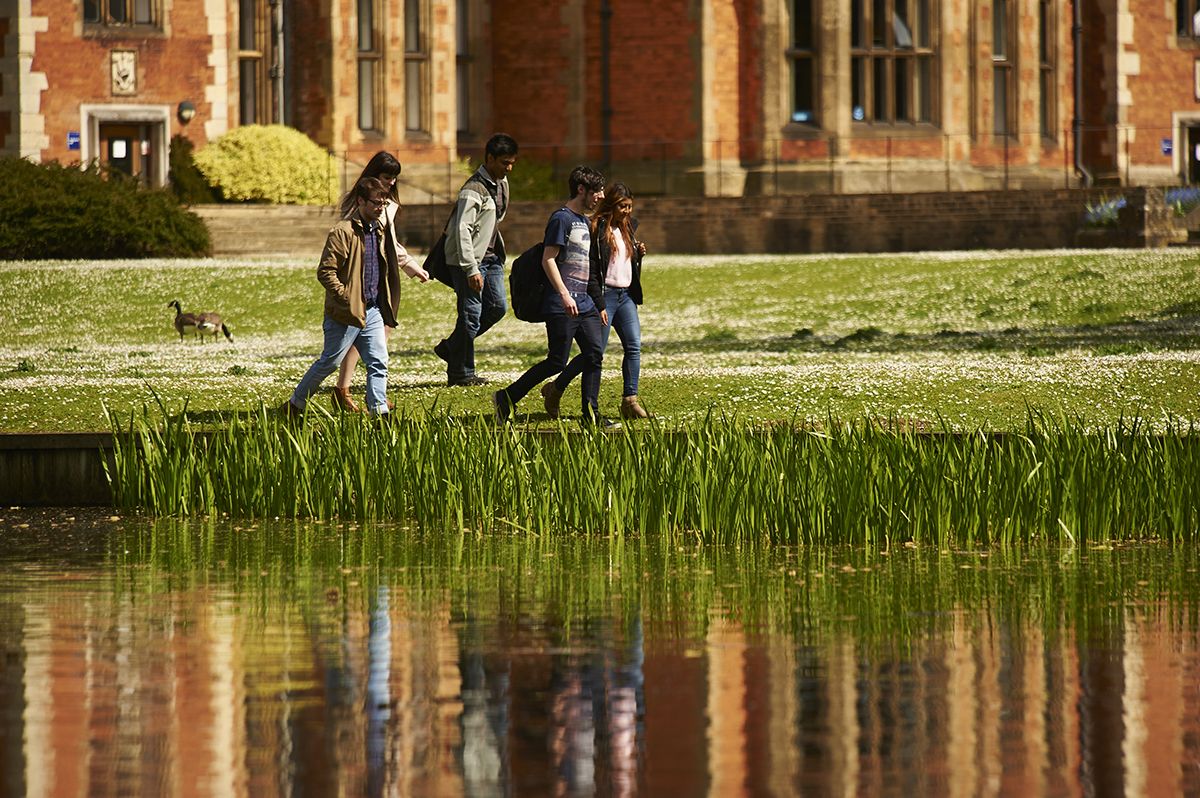
Students walking by the lake in front of Heslington Hall
Students walking by the lake in front of Heslington Hall
Thank you for reading
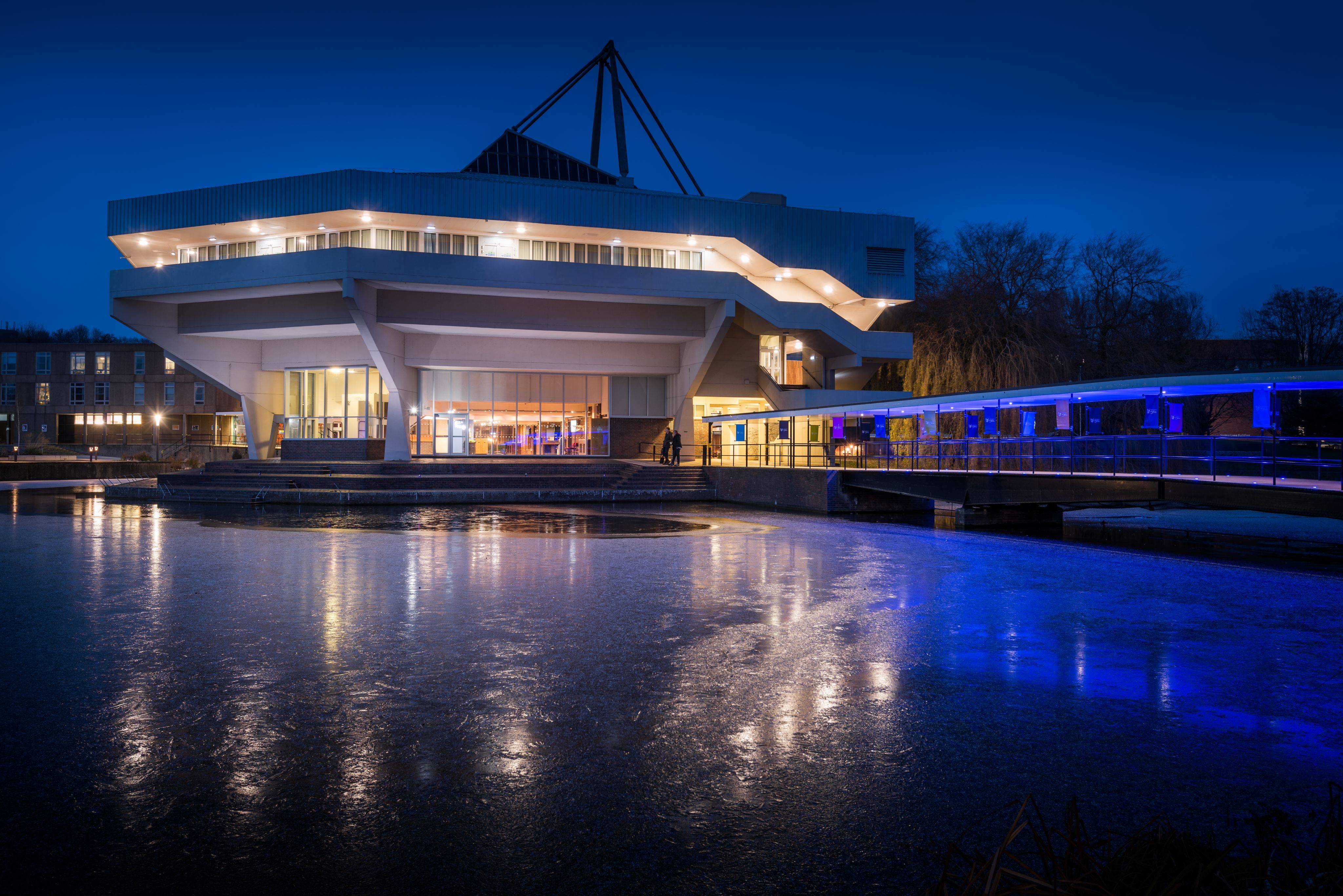
We hope you enjoyed reading the second edition of the College of Benefactors newsletter. Your incredible support continues to make a transformational impact on our present, and our collective future. Thank you so much.
To discuss anything further in this newsletter, please contact
Miriam Hemingway
Donor Experience Officer
miriam.hemingway@york
